|
The election victory of Luiz Inácio Lula da Silva as the president of Brazil for a third term on October 30 is expected to revise the relations between Brasília and Beijing. Brazil is going through a serious economic, political, social, and environmental crisis. Fighting poverty, resuming economic growth with income redistribution, reindustrializing the country, and reversing environmental abuses are urgent tasks, which will demand unprecedented national and international finesse from the new government. The economic partnership between Brazil and China, which has advanced greatly in the last two decades, may be one of the keys to reversing the crisis that Brazil faces. But some challenges will need to be faced with diplomacy and strategic planning. Despite the “insults” directed by the government under former Brazilian President Jair Bolsonaro toward China, especially during the pandemic, and the inevitable distancing of diplomatic relations between the two countries, bilateral trade between Brazil and China has increased. In 2021, bilateral trade between the two countries reached $135.4 billion with Brazil recording a trade surplus of $40 billion with China, which was only surpassed by the region of Taiwan and two countries, Australia and South Korea. China has been Brazil’s largest trading partner since 2009, accounting for almost double the trade volume that Brazil imported from its second largest partner in 2021, the U.S. ($70.5 billion), with which it recorded a deficit of $8.3 billion. A Profitable, but Unbalanced Trade Relationship Brazil’s export mix, however, is vulnerable in the long term: it is not very diversified and based on products of low aggregate value. The four main products it exports (iron ore, soy, crude oil, and animal protein) accounted for 87.7 percent of total exports to China in 2021. Meanwhile, the imports of Chinese products to Brazil are highly diversified, with a predominance of manufactured products, and with a high technological index. For example, the main import item from China to Brazil (telecommunications equipment) accounted for only 5.9 percent of imports. The Brazilian commodities sector, which is an important component of the economy, represented 68.3 percent of exports by Brazil in the first half of 2022 and has contributed for years to the increase in international reserves. On the other hand, the commodities sector has a high concentration of wealth, pays few taxes, generates relatively few and low-skill jobs, is subject to cyclical price changes, and, in many cases, causes environmental damage, which needs to be better controlled by the state. In this sense, the initiative announced by COFCO International—the largest buyer of Brazilian food in China—to monitor and prohibit the purchase of soybeans planted in areas of illegal deforestation in Brazil beginning from 2023 was important. But it will also require the Brazilian state—which has become notorious in recent years for encouraging deforestation and the invasion of Indigenous reserves—to guarantee the effectiveness of the initiative. China needs Brazil’s natural resources for its development, and Brazil needs the Chinese market for its commodities. But in the medium and long term, Brazil will need to seek greater balance in its trade agenda if it wants to return to being a solid economy. Let’s remember that in 2000, the main Brazilian export product was Embraer’s jet planes, while in 2021, the main exports were iron ore and soybeans. This is just one of the many symptoms of chronic deindustrialization. Investing Is Necessary but so Is Diversifying Chinese investments in Brazil have a similar profile to its exports: robust, but not very diversified. In 2021, Brazil received the most Chinese investments in the world, amounting to $5.9 billion (13.6 percent of the global total). Between 2005 and 2021, Brazil was the fourth-largest global recipient of Chinese investments (4.8 percent of the total), only behind the U.S. (14.3 percent), Australia (7.8 percent), and the United Kingdom (7.4 percent). These investments by China have resulted in a fundamental contribution of resources to the Brazilian economy but have not come without its set of challenges. From 2007 to 2021, 76.4 percent of the Chinese investments were concentrated in the energy sector (electricity, and oil and gas extraction), while only 5.5 percent went to the manufacturing industry and 4.5 percent went to infrastructure works, among other greatest needs of Brazil’s economy. The Brazilian electricity sector was the largest destination for Chinese investments (45.5 percent of the total), but part of this corresponded to the purchase of Brazilian state-owned companies by Chinese state-owned companies. In 2017, the Chinese company State Grid acquired a controlling interest in CPFL Energia, a state-owned company in the state of São Paulo, and in 2021, CPFL Energia bought control of CEEE-Transmissão, a state-owned company in the state of Rio Grande do Sul. For Brazil, these were not good deals and demonstrated the irresponsibility of neoliberal state governments of the Brazilian Social Democratic Party (PSDB), which privatized strategic public assets. China—which would never sell a state-owned energy company to foreigners—took care of its own interests and took advantage of a business opportunity offered by the market. It was not a privatization package imposed by the International Monetary Fund. But would Beijing be willing to accept other investment models that would bring more benefits to both countries? The Example of the Southern Hermanos Since 2021, Buenos Aires and Beijing have entered into a series of strategic investment agreements. In February 2022, Argentina joined the Belt and Road Initiative, which is expected to attract $23 billion in Chinese investments for Argentina. Before that, other investments and projects by Chinese companies included the reform of the Argentine railway system ($4.69 billion), and, voluminous investments in the electric sector, such as 1) the expansion of the Cauchari Park, Latin America’s largest solar power plant, which was originally a Sino-Argentinian partnership, 2) the construction of the “Kirchner-Cepernic” hydroelectric complex in Patagonia (costing more than $4 billion), and 3) the construction of the “Atucha III” nuclear plant (costing $8.3 billion), whose financing has an approximately eight-year grace period and, most importantly, it provides for the transfer of Chinese Hualong nuclear technology—mastered in 2021—to the Argentine state, which will control the plant. Brazil can propose partnerships similar to those by Argentina that are just as or even more strategic, with mutual benefits. Why not propose to exchange commodities (oil and gas) for infrastructure and technology with China, as countries like Iran have already proposed? Or the formation of more Sino-Brazilian joint ventures—which received only 6 percent of Chinese investments (2005-2020), while mergers and acquisitions received 70 percent—that provide for technology transfer to Brazil? Brazil will need a gigantic effort to reindustrialize its economy at several levels, such as investment in research and development, training of skilled labor, financing, and technology transfer. No other country, such as China, has the financial, industrial, and technological conditions to cooperate with Brazil in numerous promising sectors, like electric vehicles, information technology, 5G, renewable energy, aerospace, biomedicine, and semiconductors. It is up to Brazil to propose a high-level strategic dialogue with China, which reaffirmed in the report of the 20th National Congress of the Communist Party of China that it is committed to helping to accelerate the development of Global South countries. “China is prepared to invest more resources in global development cooperation. It is committed to narrowing the North-South gap and supporting and assisting other developing countries in accelerating development,” President of China Xi Jinping said during the congress. AuthorMarco Fernandes is a researcher at Tricontinental: Institute for Social Research. He is the co-editor of Dongsheng. He is a member of the No Cold War collective. He lives in Beijing. Archives December 2022
0 Comments
12/5/2022 The Necessity of the Dictatorship of the Proletariat:: a Litmus Test for Marxism By: Teo VelissarisRead Now‘Kuomintang Burns Books’ [Yang Na-Wei – Harian Rakjat, September 1, 1963] What was Marx’s main contribution in the history of ideas and the struggle for socialism? In a letter from 1852, Marx himself provided a remarkable answer: And now as to myself, no credit is due to me for discovering the existence of classes in modern society or the struggle between them. […] What I did that was new was to prove: (1) that the existence of classes is only bound up with the particular, historical phases in the development of production (2) that the class struggle necessarily leads to the dictatorship of the proletariat, (3) that this dictatorship itself only constitutes the transition to the abolition of all classes and to a classless society. Since then there has been a struggle among socialists to understand the meaning of a notion such as “the dictatorship of the proletariat” and the reasons that led Marx to adopt it. Certainly, it was understood and anticipated that a socialist revolution would most probably face resistance from a minority that would struggle to defend its vested interests against the majority’s will for change; and hence the latter would have to suppress the former. But why not call it a democracy of the proletariat then, instead of a dictatorship? When Marx and Engels, themselves, had to clarify what they meant by dictatorship of the proletariat, they pointed to the Paris Commune of 1871,1 which was generally conceived, and rightly so, as democratic par excellence by the socialist camp. Their invocation of the Paris Commune has not sufficed to clear up the confusion. One must delve into the details of Marx and Engels’ arguments in order to understand the meaning of the dictatorship of the proletariat. For them, the Commune was “the political form at last discovered under which to work out the economical emancipation of labor.” But they understood the Commune not as the end of the road but rather the beginning, not just an end in itself but also an instrument to help achieve a higher purpose: “The Commune was therefore to serve as a lever for uprooting the economical foundation upon which rests the existence of classes, and therefore of class rule.” This is crucial because for non-Marxian socialists, a successful revolution already signifies the uprooting of the aforementioned economic foundation. But, for Marx, the revolutionary Commune would facilitate labor’s emancipation, without yet being labor’s emancipation in the flesh. And the same goes for the dictatorship of the proletariat in general: Between capitalist and communist society there lies the period of the revolutionary transformation of the one into the other. Corresponding to this is also a political transition period in which the state can be nothing but the revolutionary dictatorship of the proletariat. Therefore, the Commune, however democratic and desirable, couldn’t avoid remaining a state, not yet communist; it wasn’t something out of this world, unaffected by capitalist reality, as if it had landed in Paris from an alien non-authoritarian communist planet. Revolutions are instigated by human beings, who are the products, “down to their innermost core,” of the same problematic society they want to change.2 So, the Commune was rather “the direct antithesis to the empire.” The “empire” (i.e. Bonapartism) was the authoritarian form that politics assumed under conditions of capitalism post-1848 (all politics, even democratic politics, or, rather, especially democratic politics). It was “the only form of government possible at a time when the bourgeoisie had already lost, and the working class had not yet acquired, the faculty of ruling the nation.” If Bonapartism was the dystopian expression of the 1848 workers’ demand for a “social republic,” the Commune “was the positive form of that republic.” The Commune emerged within this void of authoritarian disintegration and the crisis of capitalist politics but was at least “positive” in pointing beyond it by allowing the working class and the democratic majority of society to assume responsibility for it. For Marxism, the dictatorship of the proletariat signifies the condition when the working class has finally acquired the faculty of ruling the nation3 – even though only in order to ultimately make such a “ruling” redundant.4 The proletariat wouldn’t follow the example of the bourgeoisie in its attempt to acquire political power.5 Contrary to various anti-Marxist clichés, Marxism did not liken the revolutionary development of the working class within the womb of capitalism to the development of the bourgeoisie within the womb of feudalism. According to Rosa Luxemburg, bourgeois society is decisively distinguished from other class societies because in it “class domination does not rest on ‘acquired rights’ but on real economic relations.” Wage slavery is not expressed in laws, hence wage slavery cannot be suppressed by means of “legislation.” She cites key parts of the Communist Manifesto to make her case: All previous societies were based on an antagonism between an oppressing class and an oppressed class’. But in the preceding phases of modern society this antagonism was expressed in distinctly determined juridical relations and could, especially because of that, accord, to a certain extent, a place to new relations within the framework of the old. ‘In the midst of serfdom, the serf raised himself to the rank of a member of the town community. I really cannot overemphasize the significance of this point, which many on the Left—Marxist or otherwise—still fail to comprehend: only prior phases of modern society could accord “a place to new relations within the framework of the old.” For these leftists, similarly to the bourgeoisie within feudalism, it is somehow possible for the proletariat to first develop itself and become socially empowered within capitalism, and when this development is complete and the situation is ripe, only then seize political power. But in capitalism the situation can never be ripe enough for the proletariat, which remains permanently vulnerable to the economic conditions and their crisis. As Luxemburg explains, it’s not the law but rather “poverty, the lack of means of production, [that] obliges the proletariat to submit itself to the yoke of capitalism.” Consequently, if we remain within the framework of bourgeois society one cannot expect the law to be able to give to the proletariat the means of production. Under capitalism, wage slavery cannot be accommodated by existing legal relations, because it isn’t a juridical but an economic relation. As a result, even with the most stringent labor laws, this will not impinge on the extraction of surplus value and the necessity of surplus labor. Luxemburg goes on to extract the quintessence of Marxism on this issue, highlighting one of the peculiarities of the capitalist order: Within it all the elements of the future society first assume, in their development, a form not approaching socialism but, on the contrary, a form moving more and more away from socialism. Production takes on a progressively increasing social character. But […] It is expressed in the form of the large enterprise, in the form of the shareholding concern, the cartel, within which the capitalist antagonisms, capitalist exploitation, the oppression of labour-power, are augmented to the extreme. […] In the field of political relations, the development of democracy brings – in the measure that it finds a favourable soil – the participation of all popular strata in political life and, consequently, some sort of ‘people’s State.’ But this participation takes the form of bourgeois parliamentarism, in which class antagonisms and class domination are not done away with, but are, on the contrary, displayed in the open. Exactly because capitalist development moves through these contradictions, it is necessary to extract the kernel of socialist society from its capitalist shell. Exactly for this reason must the proletariat seize political power and suppress completely the capitalist system. Seizing political power and completely suppressing the capitalist system: the dictatorship of the proletariat in a nutshell! Again, an invaluable Marxist lesson: development within capitalism, even when it appears to bring one closer to realizing one’s ideals, is actually moving one further away from them at the same time. The proletariat must take responsibility for the aforementioned contradiction and prioritize its self-organization through parties and institutions in order to first seize political power. Only then can it start seriously placing new economic relations in the framework of the new political order (not the old). Marx didn’t fail to underline this aspect himself, stating that the “social revolution of the nineteenth century cannot take its poetry from the past but only from the future.” The bourgeois revolutions appeared as the legitimate political capstone of social evolution, whereas the socialist revolutions will always appear as socially immature, untimely, and illegitimate. The proletariat finds that it must attain political power to address the problem of capital. This means that the proletariat’s political revolution—unlike that of the bourgeoisie—is the beginning, rather than the culmination, of the revolutionary process. It is at this point that most anti-Marxist socialists begin to object. They expect Day One of the revolution to be close to idyllic, and certainly not dictatorial at all, revealing their basically bourgeois conception of revolution. According to the anti-Marxist socialist, the proletariat can achieve the same crucial preliminary gains under capitalism that the bourgeoisie achieved under feudalism (which is an astonishing apology of capitalism as a system that enables the flourishing of the economy and culture, and, in the final analysis, permits the freedom of the class that it oppresses). This leads to the impasse of pre-figurative initiatives to create within capitalism proto-forms of socialism that will gradually grow and challenge competitively the capitalist system without the unfortunate need to engage in mass politics from a working class perspective; these initiatives usually end up feeding into and being subordinated to so-called progressive capitalist policies. The proletariat is thought to thereby instantly remove the privileges of its enemies in order to achieve immediately a non-dictatorial reality.6 But the proletariat’s enemies will always feel entitled to appeal to their abstract right in order to legitimize their power. Such appeals are commonplace under “normal” capitalist conditions and will proliferate in moments of political crisis. Dictatorial force thus seems unavoidable to decide the outcome of the struggle, as Marx remarked when he was addressing the antinomy of “right against right” in Das Kapital.7 Given these contradictions and antinomies, every effort by the working class to seize political power will be denounced by the establishment as barbaric and dictatorial (even if it is supported by the majority), and its effort to create a new legality will always be vehemently opposed by the current legality. This crisis of legality is already manifest in capitalist democracy. For example, during the first years of its financial crisis, circa 2010, Greece had to impose unprecedented austerity measures, and the legality, or the constitutionality, of the relevant memoranda of austerity was challenged immediately even from within the bourgeois democratic camp. But this was never and has never been addressed as an abstract question of law, legality, and justice, but rather as a series of exceptional political, economic, and legal measures in a state of emergency, in view of the country’s objective of remaining in the European Union and the Eurozone. The austerity measures had to be implemented coercively as a matter of life and death, and the question of their legality was to be adjudicated on an ad hoc basis; legality was subordinated to politics. The issue had to be resolved dictatorially, with the special bodies of armed men in the street enforcing the decisions of the elected establishment. The chief example of how capitalist democracy and legality contradict each other was of course exhibited by the fate of the referendum against the austerity measures, first the one that was canceled, and then the one whose result was ignored. Even the explicit preference of the majority on a single issue didn’t appear as a legitimate challenge to the political status quo. These problems cannot be resolved by simply appealing to democracy, because under conditions of capitalism and especially post-1848, democracy itself appeared unable not only to address the social crisis but also to express the potential to move beyond it. Famously, as we already mentioned, the cry of the Parisian workers in 1848 was not just for democracy but for “république sociale,” for democracy adequate to societal needs. Capitalism divided the political and economic aspects of life in an unprecedented manner, turning the one against the other (and the freedom and rights of the individual against the freedom of the collective), rendering acute what was now expressed as the competition between democracy and liberalism: the latter two instead of enhancing each other, appeared now as undermining and violating each other, eager to “correct” each other’s deficiencies.8 Marx wasn’t nostalgic at all and didn’t pursue a (pseudo-)solution of this problem in pre-capitalist terms. “In the Middle Ages”, he wrote, “popular life and state [i.e., political] life were identical. Man was the actual principle of the state, but he was unfree man. It was therefore the democracy of unfreedom, accomplished alienation.” The desperate need for democracy circa 1848 (persisting till our present) was an index of regression, a cry for help within social disintegration and crisis, not an achievement of progress. Marx tried to avoid naturalizing this cry for help from a democratic state in the role of deus ex machina, and to grasp it critically: the need for democracy was attesting not to the presence but to the lack of an “association, in which the free development of each is the condition for the free development of all,” as the Manifesto had succinctly described the possible overcoming of both democracy and liberalism, beyond classes and class antagonisms. Ignoring these sorts of contradictions that are already at play within any capitalist democratic legality and succumbing to “the lofty heaven of [an] ideal republic,” can lead to disastrous political paralysis. To cite an example, it is well known that the Spanish anarchists defended Barcelona and Catalonia from the fascist coup in July 1936. What is less well known is that when the fascists were ousted, the petty bourgeois democrat governor of Catalonia, Luis Companys, in a state of awe and fear, said to the representatives of the CNT: You are now in control of the city and Catalonia because you alone routed the fascist militarists. Understanding that the CNT/FAI had de facto control indeed, some anarchists proposed that the unions should take power and overthrow the Generalitat and impose their anarchist vision of libertarian communism. But many others argued that this would be a refutation of their vision, a dictatorship imposed by a minority (CNT/FAI had a simple but not a super-majority of 50+1% among the workers); that it would mean the imposition of an anarchist dictatorship, a Bolshevik style coup. So, after a heated debate, the Barcelona labor council voted against the option of taking power. By choosing not to transfer power to the workers’ new-born institutions and by disavowing political power as authoritarian, the anarchists facilitated the dictatorial concentration of power in other dubious institutions and agents. By attempting to avoid the problem of power and the problem of the state, the anarchists became adjuncts in other, far worse dictatorships—of the bourgeoisie, the reaction, the minority. (It is not as if there was a choice beyond dictatorship – the only choice was who was going to assume responsibility for the prevailing authoritarianism and how it was going to be enacted in practice). The CNT/FAI leadership declined the dictatorship of the proletariat but accepted the subordination of the newly formed revolutionary militias to the bourgeois state. In exchange they were granted four government ministries in a popular front and a bourgeois democratic government that ended up dictatorially suppressing workers itself (see the events of the Barcelona insurrection in May 1937).9 The purpose of this short digression is not to single out anarchism as problematic and the anarchists as the sole “apostles of political indifferentism”; Marxists were also affected by paralysis and they denounced revolution by denouncing the dictatorship of the proletariat (see for example the events in Germany, 1918).10 Rather, anarchism is an object lesson in the inevitability of authoritarianism in an authoritarian world, no matter how many times one may denounce it ideologically. It is no surprise, then, that the same anarchists who fiercely attack Marxism for authoritarianism so often end up accusing one another of “crypto-Leninism.” It is interesting to read how Luxemburg assessed, in Marxist terms, Lenin’s stance towards this problem of possible paralysis in revolutionary conditions: It is not a matter of this or that secondary question of tactics, but of the capacity for action of the proletariat, the strength to act, the will to power of socialism as such. In this, Lenin and Trotsky and their friends were the first, those who went ahead as an example to the proletariat of the world; they are still the only ones up to now who can cry with Hutten: ‘I have dared’! …these German Social-Democrats have sought to apply to revolutions the home-made wisdom of the parliamentary nursery: in order to carry anything, you must first have a majority. The same, they say, applies to a revolution: first let’s become a ‘majority.’ The true dialectic of revolutions, however, stands this wisdom of parliamentary moles on its head: not through a majority, but through revolutionary tactics to a majority – that’s the way the road runs. Their Marxism, their subscription to the necessity of the dictatorship of the proletariat, enabled Lenin and the Bolsheviks to strengthen the proletariat’s capacity for action in its struggle for socialism.11 The reader shouldn’t conclude in a voluntaristic fashion that the conditions are always ripe for revolution; the point is rather that even when conditions may be ripe, strong ideological obstacles, like the allergy to the idea of the dictatorship of the proletariat, may ultimately lead to disastrous paralysis. The disavowal of the dictatorship of the proletariat prepares the way for such an abandonment of revolutionary responsibility. Because, like it or not, all big political shifts in mass capitalist politics raise the specter of dictatorship, and thinking otherwise is the hallmark of bankrupt liberalism. Capital is pathological and revolution is a symptom of capital.12 So, the key is not to just denounce social authoritarianism but to assume responsibility for it and to try to channel the authoritarian energy toward revolutionary goals through democratic means and ends (thus Lenin for example didn’t denounce war but aimed to turn the world war into a civil war). Marx sarcastically noted that non-Marxist social democrats and democratic socialists only cared to feel that they were on the side of eternal justice and all the other eternal truths, no matter if the things that matter most, power and success, were never on their side. Returning to Marx and Engels, while they defended and praised the Paris Commune, they didn’t fail to criticize the hesitancy of its leadership on key moments of their struggle: In their reluctance to continue the civil war opened by Thiers’ burglarious attempt on Montmartre, the Central Committee made themselves, this time, guilty of a decisive mistake in not at once marching upon Versailles, then completely helpless, and thus putting an end to the conspiracies of Thiers and his Rurals. And: The hardest thing to understand is certainly the holy awe with which they remained standing respectfully outside the gates of the Bank of France. This was also a serious political mistake. Both of these actions, had they been attempted, would have been denounced by many as dictatorial, in the sense that it would have appeared that the Commune was crossing the line by weighing in arbitrarily on the national level without a pre-given relevant political legitimacy. The Commune succumbed to these reservations; its leaders lacked the strength to act. Engels also wrote in regard to this issue that a victorious party in a revolution: must maintain this rule by means of the terror which its arms inspire in the reactionists. Would the Paris Commune have lasted a single day if it had not made use of this authority of the armed people against the bourgeois? Should we not, on the contrary, reproach it for not having used it freely enough? These criticisms should be kept in mind because Marx and Engels admired exactly all of the characteristics of the Commune that were more democratic compared to the bourgeois parliaments, not less. Engels summarized Marx’s description of how the Commune was shattering the former state power, that was functioning as the master of society, and was replacing it by a new and really democratic state that was becoming now, for the first time, the servant of society: “It filled all posts – administrative, judicial, and educational – by election on the basis of universal suffrage of all concerned, with the right of the same electors to recall their delegate at any time. And in the second place, all officials, high or low, were paid only the wages received by other workers.”13 Hal Draper,14 in his monumental work on the concept of the dictatorship of the proletariat describes an incident during the last days of the Commune: the majority proposed to create a five man uber-authority (a dictatorial committee of public safety) and all those from the minority who were Marxists or influenced by Marx stood against it – not accidentally. The Commune should have exercised its authority more readily and freely, but only if it was legitimized through the extremely democratic institutions of direct control and recallability of representatives that it created. But, crucially, Commune’s legitimization was also stemming from the way it was fulfilling the desiderata of liberalism, not just democracy: The Commune made that catchword of bourgeois revolutions – cheap government – a reality by destroying the two greatest sources of expenditure: the standing army and state functionarism. Its very existence presupposed the non-existence of monarchy, which, in Europe at least, is the normal incumbrance and indispensable cloak of class rule. […] The Commune intended to abolish that class property which makes the labor of the many the wealth of the few. It aimed at the expropriation of the expropriators. It wanted to make individual property a truth by transforming the means of production, land, and capital, now chiefly the means of enslaving and exploiting labor, into mere instruments of free and associated labor. Draper compellingly shows that by the dictatorship of the proletariat Marx meant the political rule of the proletariat and, more so, a class dictatorship rather than an individual or clique dictatorship (via class representatives that would rule without accountability). Draper exposed how other socialists in Marx’s time, including Blanquists, anarchists and others, were pursuing a dictatorship over the proletariat, or some sort of educational dictatorship: the people, the masses, were assumed to be corrupted by the social order, and they had to be saved despite themselves with the help of the good and wise guys of the revolutionary elite – rings a bell comparing to how large segments of the Left today treat the masses? The term, according to Draper, was more about the class content of a new revolutionary regime, not about the particular type of the new political institutions. It was another way to describe what we would otherwise just call a worker’s state. But Draper, in drawing these important conclusions, neutralized Marx’s and Engel’s critical approach to the worker’s state itself. The point is that states are always more or less dictatorial, in a negative sense; and this stands even for the most democratic ones, when they exist within class society, and in conditions of capitalism or conditions still under the influence of capitalism. The state equals use of forcible coercion, coercive rule; it’s an organized machinery of suppression, even if its special bodies of armed men work genuinely in the name of the majority.15 Draper, thus, leaves us rather unprepared to understand why for Marxism the workers’ state is transitory and needs also to be overcome, and why for Marx there is a crucial distinction between a still pathological and problematic “first phase of communist society” and a “higher phase of communist society” emancipated from capital.16 The use of the term “dictatorship of the proletariat” by Marx and Engels wasn’t just a rhetorical device to tactically win over the Blanquists, as Draper suggests (which is unlikely because they kept using the term even after the decline of Blanquism). In my opinion, it was a conscious choice on their part in order to signify the authoritarianism still at play during the revolution and the first phase of communist society, which Marxists needed to be self-conscious of in order to facilitate its possible overcoming in a higher phase of communism. Draper also criticizes Lenin for what he considers his confusing and contradictory usage of the notion of dictatorship of the proletariat. So, let’s return to Lenin. Lenin fully endorsed what Marx wrote to Weydemeyer (cited above) and wrote similarly that the distinctive characteristic of Marxism was the extension of the recognition of the class struggle to the recognition of the dictatorship of the proletariat.17 The aspect that Lenin was adding to the argument was about the “opportunist distortion of Marxism and its falsification in a spirit acceptable to the bourgeoisie.” So Lenin points out the new context of a new period in history, when Marxists were accusing each other of betraying Marxism and of becoming instruments of the reaction (and when workers were killing each other in the name of their nation-states during WWI): a period of acute and aggressive social malaise, when Marxism found itself to be strong enough in order to not just remain a passive observer of the pathology but an active agent within it and also, of it. It wasn’t an accident that the dictatorship of the proletariat didn’t exist in any public socialist program before this period (including the ones that Marx prepared himself). And even when they used the term for internal reasons or on theoretical works, the emphasis of the socialists of the pre-war period was on “of the proletariat” part, rather than on the “dictatorship.” The term appeared massively during WWI but initially in the program of Russian social democracy circa 1905. The First Russian revolution challenged what was considered Marxist orthodoxy and its stance towards revolutionary change.18 The newly born problem of opportunism, reformism, and revisionism in the intra-Marxist disputes was starting to become acute, together with the active appearance of the masses in the political scene. The stakes were becoming high, and also the tensions: the Menshevik Martynov, amidst the revolutionary situation of 1905, was insisting that only a bourgeois regime was in the cards. In Lenin’s hands, however, the term began to have some obscure uses as he was trying to avoid a similar path, e.g. in his formulation about a possible dictatorship of the peasantry and proletariat. It wasn’t so much the usage of the term by Lenin that was confusing and contradictory but rather the reality itself was becoming acutely contradictory and Marxism was affected accordingly, reflecting these new conditions and challenges. Several years later, in 1914-18, this tension reached a peak. Marxism was split and, while declaring fidelity to the same references to Marx, one camp of Marxists preached revolution and the other became the bastion of counter-revolution. This was the first time after 1848 that a revolution broke out in many countries in parallel and even so under the guidance of Marxists. It was during this time that Lenin offered a definition of dictatorship that is considered by Draper and others (for example by Morris Hillquit) as very problematic: Dictatorship is rule based directly upon force and unrestricted by any laws. The revolutionary dictatorship of the proletariat is rule won and maintained by the use of violence by the proletariat against the bourgeoisie, rule that is unrestricted by any laws. Make no mistake, Lenin wasn’t a fanatic: during the eighth party congress, in March 1919, he stated explicitly that “it is theoretically quite conceivable that the dictatorship of the proletariat may suppress the bourgeoisie at every step without disfranchising them.” But what is disturbing to many in this passage is Lenin’s reference to non-restriction by any laws. Similarly to what Luxemburg wrote of revolution, cited before, this formulation by Lenin emphasizes the need to follow revolutionary tactics first in order to achieve democracy second. Revolutions are not static but dynamic phenomena: people realize what they want in the process of the revolution and not in advance, and revolutions help them to clarify their standpoint. Hence, the dictatorship of the proletariat will most probably appear as lawless, because there is no given legal foundation for it in advance. Revolutionary conditions do not include moments where the old legality opposes a new, fully formed one, but rather voids of legality and moments of spontaneous (even violent) acts that need to be disciplined as soon as possible through the new legality, that’s however still under formation. Bourgeois jurisprudence would surely object to what appears to it as lawless barbarism. It would be helpful, however, in this context to remember what Lukacs noted about the revolutionary, heroic, period of the bourgeois class, when it “refused to admit that a legal relationship had a valid foundation merely because it existed in fact. ‘Burn your laws and make new ones!’ Voltaire counselled; ‘Whence can new laws be obtained? From Reason!’” Moving away from its revolutionary moment the bourgeoisie gradually adopted a standpoint according to which “the content of law is something purely factual and hence not to be comprehended by the formal categories of jurisprudence.” The cohesion of laws became purely formal and the content of the legal institutions was not considered having a legal, but rather a political and economic character. In this manner, “the attempt to ground law in reason and to give it a rational content” was abandoned. The result was that the “process by which law comes into being and passes away” became “as incomprehensible to the jurist as crises had been to the political economist.” Lukacs is quoting Kelsen confessing sincerely his aporia regarding “the great mystery of law,” recognizing as symptomatic of the nature of law “that a norm may be legitimate even if its origins are iniquitous” and that “the legitimate origin of a law cannot be written into the concept of law as one of its conditions.” This blindness concerning the origin of law challenges the right of the established jurisprudence to assess the legitimacy of the proletarian revolution and its new legality. A caveat is necessary here: the recognition of the real basis for the development of law in the change in the power relations between the classes, can be misinterpreted as a repetition of the ancient concept that Thrasymachus summarized, that justice is nothing other than the advantage of the stronger. Ι cannot delve more into this problem here but Ι can certainly point out the self-conception of Marxists as certainly willing to overcome bourgeois society but only through carrying on its revolutionary tradition and completing it. In a past article, Jensen Suther and I tried to point out how “philosophy cannot be conceived as just a ‘means’ to a contingent political end Marxists happen to have — as if a set of ideologies or principles pragmatically useful for achieving ‘our’ political goals — since the ‘ends’ of Marxism themselves must be justifiable, must in principle be recognizable by all, and must meet the standards of Reason.”19 The fact that Lukacs, in his assessment of reification, included philosophy as its peak expression, shouldn’t make us forget his devotion and effort to rescue, “as a vital intellectual force for the present,” “all the seminal elements” of the thought of Hegel and the true laws of his dialectics. Unfortunately, the Russian “state of emergency” was prolonged for so long after 1917 in an isolated national regime which ended up being de facto Stalinist, and that retrospectively makes Lenin’s reference to non-restriction by any laws sound apologetic to the worst possible Machiavellianism. But we have to think: who was to blame for the failure of the revolution circa 191720 to achieve socialism on an international level, and especially to involve in the effort those countries where capital was highly concentrated? Was it because of how much Lenin’s ideas about the dictatorship of the proletariat were implemented, or because of how little they were implemented? Was the problem that we had too many Lenins or rather that we had too many Eberts? Lenin’s Marxism ultimately failed but since it went the furthest compared to all other socialisms, it is legitimate to try to correct it from within, and hence do better what Lenin tried to do instead of fully denouncing him. The bet of Marxism is to out-Lenin Lenin. The German Marxists of the SPD were repulsed by these ideas, expressed also by Luxemburg, because in premature conditions they would allegedly destroy any real prospects for socialism: but their own pseudo-prudent road for socialism, as opposed to the supposed hysteria of Luxemburg, facilitated exactly the rise of fascism and the liquidation of socialism that it wanted to avoid in the first place. Politics is indeed a dangerous business, full of risks because of the unknown outcomes. Socialist politics is not an exception. Being excited for the mass politics of the dictatorship of the proletariat, and not also remaining critical and cautious, is a problem; but being allergic to it is the biggest problem. Stemming from capitalism, any socialist wielding of power by the proletariat as a class cannot but be dictatorial. But, if successful, even with all of its shortcomings, it’s much more desirable compared to the blind irrational dictatorial reality right now.21 But how does capitalism persist in the dictatorship of the proletariat? The revolution carries with it from its direct past what Marx called “bourgeois right.” This is the right of the workers to claim for them a part of the outcome of the production process, in accordance with the labor they supplied. Bourgeois right is actually productive, in the sense that it motivates workers to engage in socialist politics in the first place: capitalism fails to fulfill the promise of bourgeois right, and not only workers do not get rewarded according to the labor they supplied, they also witness others getting rewarded more, irrespectively of their labor, with the capitalists and their families being a primary example of this unfairness. But bourgeois right is also problematic, and this is becoming apparent during the revolution. Marx explains that the equality of the bourgeois right …consists in the fact that measurement is made with an equal standard, labor. But one man is superior to another physically, or mentally, and supplies more labor in the same time, or can labor for a longer time; and labor, to serve as a measure, must be defined by its duration or intensity, otherwise it ceases to be a standard of measurement. This equal right is an unequal right for unequal labor. It recognizes no class differences, because everyone is only a worker like everyone else; but it tacitly recognizes unequal individual endowment, and thus productive capacity, as a natural privilege. It is, therefore, a right of inequality, in its content, like every right. Right, by its very nature, can consist only in the application of an equal standard; but unequal individuals (and they would not be different individuals if they were not unequal) are measurable only by an equal standard insofar as they are brought under an equal point of view, are taken from one definite side only – for instance, in the present case, are regarded only as workers and nothing more is seen in them, everything else being ignored. Further, one worker is married, another is not; one has more children than another, and so on and so forth. Thus, with an equal performance of labor, and hence an equal in the social consumption fund, one will in fact receive more than another, one will be richer than another, and so on. To avoid all these defects, right, instead of being equal, would have to be unequal. But these defects are inevitable in the first phase of communist society as it is when it has just emerged after prolonged birth pangs from capitalist society. Right can never be higher than the economic structure of society and its cultural development conditioned thereby. So, bourgeois right is inherited in the revolution from capitalism even in the optimal scenario with revolution successfully prevailing completely over the capitalists. Society on Day Two will still look forward to a kind of government that retains the monopoly of violence in order to resolve the disputes of its members, who have internalized “bourgeois right” and who are not yet accustomed to another way of life that would completely eliminate the need for a state policing the discontents produced by the unfairness of this equal standard.22 Only through creating a society in its image the proletariat can abolish itself – this is the peculiar Marxist treatment of overcoming something through fulfilling it and exhausting its potential. Some of the key manifestations of bourgeois right are already at play in capitalism: the need for the state doesn’t only reflect the competition between workers and capitalists but also the competition between workers for a limited number of jobs. When for example the cops are violently evacuating a squat, their legitimization doesn’t spring exclusively from the property rights of the owners but also, more broadly, socially and culturally, from the propertylessness of workers who are obliged to pay rent and (in an a process of identification with the aggressor) do not tolerate the “unfairness” of others not having to pay for rent also. Even more crucially, in that it remains a problem even after the revolution, when unemployment will be hopefully eliminated, bourgeois right is expressed in the injustice of equal pay for equal work between people with unequal needs: this injustice that continues through capitalism to the lower phase of socialism leads to the persistence of the need to “dictatorially” implement bourgeois right as it cannot be abolished by decrees but, according to Marx and Lenin, can only “wither away” gradually, through the political and social empowerment of the subjects that are assuming responsibility for their own pathology. Democracy is the political expression of the same problem: unequal individuals are brought under an equal point of view, and in this case they are regarded only as voters. This reasoning above is crucial in order to understand the meaning of the dictatorship of the proletariat for Marxism and the terminological preference over other options, such as democracy. Lea Ypi has also tried to explain the need for the dictatorship of the proletariat in an important article. She rightly observes that the reason Marx and Engels were insisting on calling revolutionary socialist government a dictatorship “is to remind us of the provisional and transitional nature of coercive authority or, to put it differently, to remind us of the limited legitimacy of the new political order compared with the full legitimacy that a more desirable alternative might enjoy”. She also interestingly explains how real democracy can be realized only without the state as an organized form of coercion, and that everything before achieving that is nothing but a distorted form of democracy, distorted by capital (even if capitalists are defeated).23 But she ultimately fails to grasp the subjective nature of the problem of transition to a truly free society, in her overinterpretation of Marx. She writes: Why is the legitimacy that the dictatorship of the proletariat enjoys a limited form of legitimacy? And why is it legitimacy at all? The answer, I believe, lies in an argument that Marx does not make about the epistemic impact of structural advantage and disadvantage on people’s views of justice and injustice. If the claim about the ideological effects of capitalist social relations is correct, then it is implausible to expect literally everyone in a society rigged by capitalist injustice to endorse the revolutionary project. Although, the oppressed themselves will, in the course of political struggle, acquire an epistemic insight into the scale of injustice confronted by that society, we can anticipate that their insight will not be shared by everyone. People might object to radical change for all sorts of reasons: their motives might be selfish, ignorant, immoral, or a combination of all of these. But whatever the reasons are, epistemic bias might prevent members of certain groups in society (such as those who have vested interests in the preservation of the previous order, or administrative, and political elites who are not directly oppressed and are therefore ideologically blind to the scale of injustice) from identifying with new institutions. Every institution emerging from deep political conflict faces serious obstacles in terms of the epistemic burdens associated to people’s recognition of new political roles and positions and to a new system of economic production and distribution. Thus, every institutional configuration, no matter how just in its inception, will be purely coercive for some. My counter-argument is that the institutional configuration will be coercive and dictatorial, not because of some who will deny radical change, but because of the majority that will sustain it. The dictatorship of the proletariat has less to do with a dissenting minority, and more to do with a vast majority still enchanted and dominated by the compulsion to labor as the sole (and equal) measure for value. The coercion survives in order to enforce bourgeois right, and only because of that to suppress others and oneself (to keep going to work). Immediately after the revolution, we continue to know ourselves only as workers, as commodities. That’s the pathology that still produces irrationalism that is then translated in the need for special bodies of armed workers to police and balance its problematic outcomes. It’s not as if after the revolution there is a majority fully satisfied and a minority dissatisfied; the majority remains ambivalent about the regime it sustains. The key source of coercion will not be for example the fact that some won’t want to be disciplined and go to work, but the fact that the majority knows no other way to live apart from going to work to produce value. The epiphenomenon is that they will coerce the minority but the problem lies within the majority. According to Ypi we would move to communism as soon as the minority stops the irrational resistance and adopt to the requirements of the new regime, whereas for Marx we would move to communism only if everybody changed and conquered a new way of life, beyond the regime of capital and its expression as bourgeois right that still survives subjectively after the revolution.24 The revolution that results in the political supremacy of the proletariat is a dictatorship because it doesn’t abolish capital as social domination but produces a pure form of its rule over society,25 with less distraction from the problem of its “character masks,” of capitalists who are “mere personifications of the economic relations.”26 The revolutionary potential of such conditions was thematized philosophically from Lassalle in a letter to Marx (12 December, 1851): “Hegel used to say in his old age that directly before the emergence of something qualitatively new, the old state of affairs gathers itself up into its original, purely general, essence, into its simple totality, transcending and absorbing back into itself all those marked differences and peculiarities which it evinced when it was still viable.”27 How can one radically transform the society of which one is also a part? How can one become an agent of change and at the same time be part of that which is changing? How can society be simultaneously the subject and object of revolution? It was these kinds of problems that led Marx and the Marxists to express themselves through seemingly contradictory formulations, such as that of the dictatorship of the proletariat as a precondition of democracy (and vice versa). And that’s also what led Marxists to get involved in the thankless job of party-building: multiple parties and organizations of the working class, before the revolution but even more so after it, are necessary in order to thematize politically the problem of capital, i.e. the problem of worker versus worker (and not just of worker versus capitalist), engage with it in a tangible manner and hopefully overcome it completely (proper democratic party procedures and commitment to principles become also extremely important given the problem of legality described above). Concerning democracy, we need to be careful not to turn into apologists for anti-democratic authoritarianism, but we also need to be careful not to end up in the democratic reactionary camp. Engels warned that “our sole adversary on the day of the crisis and on the day after the crisis will be the whole collective reaction which will group itself around pure democracy, and this, I think, should not be lost sight of.” This warning was issued by the same Engels who wrote that “if one thing is certain it is that our party and the working class can only come to power under the form of a democratic republic. This is even the specific form for the dictatorship of the proletariat, as the Great French Revolution has already shown.” The dictatorship of the proletariat is not undemocratic, but it is rather the outcome of how democracy undermines itself under capitalism. It’s a mistake of course to confuse and identify the democratic republic in general with the bourgeois democratic republic. But it’s also wrong to assume that even in the best-case scenario socialist democracy after the revolution will not face authoritarian challenges stemming from the economic realities still at work. The Communist Manifesto was already explicit about this: on the one hand, the revolution would allow the proletariat “to win the battle of democracy”. On the other hand, the proletariat organized as the ruling class would aim to increase total productivity of society, but “in the beginning, this cannot be effected except by means of despotic inroads on the rights of property.” Remarkably, Marx and Engels admit that these measures will “appear economically insufficient and untenable” but they clarify that these same measures “in the course of the movement, outstrip themselves, necessitate further inroads upon the old social order, and are unavoidable as a means of entirely revolutionizing the mode of production.” Instead of dismissing Marxism as confusing one should navigate through such formulations that appear to contradict each other, as Engels’ above, to try to make sense of a contradictory reality through them. The specter of dictatorship haunts us side by side with the specter of democracy because revolution is not the final victory of a communist majority of people versus a capitalist minority. The problem of capital is reproduced from below, when we, the majority, actively reproduce bourgeois right and succumb to its contradictions. An instant elimination of capitalism is impossible, it would imply eliminating all the masses of people that spontaneously sustain it (capitalism is reproduced radically differently compared to pre-capitalist societies). Hence, revolution facilitates a long challenging process of subjective also, and not only objective transformation. In this context this obscure and dense remark by Adorno starts making total sense: Marx was too harmless; he probably imagined quite naïvely that human beings are basically the same in all essentials and will remain so. It would be a good idea, therefore, to deprive them of their second nature. He was not concerned with their subjectivity; he probably didn’t look into that too closely. The idea that human beings are the products of society down to their innermost core is an idea that he would have rejected as a milieu theory. Lenin was the first person to assert this.28 This subjective aspect of social pathology, to its ultimate repercussions, is ignored by all other socialisms apart from Marxism. And this leads other socialisms into ignoring the importance of facilitating working class independent engagement with democratic mass politics, despite the pathological character of this process that Marxists of course need to remain aware of. Anti-Marxists denounce the dictatorship of the proletariat only to excuse their compromise and accommodation with the current dictatorial reality into which democracy already functions.
AuthorTeo Velissaris This article was republished from Cosmonaut. Archives December 2022 12/5/2022 US youth observe Cuba’s elections – and learn about real democracy By: Calla WalshRead Now
A delegation of youth from the United States observed Cuba’s November 2022 municipal elections and offer an inside look into a true people’s democracy, where workers decide who will govern them, not wealthy oligarchs and corporations.
Cubans voting in municipal elections in La Habana on November 27, 2022
Cuba held elections for its organs of local government, the Municipal Assemblies of People’s Power, on November 27. A delegation of youth from the United States observed the vote first-hand as part of the US-Cuba Youth Friendship Meeting.
Coming from the fundamentally undemocratic US Empire, it was the first time that many participants saw a functional electoral system in which the masses actually participate, and in which the majority truly rules.
Voter rolls and biographies of the nominees are posted outside of the polling station at the La Corbata cultural-technological center in La Habana, Cuba.
We observed voting in La Corbata, a neighborhood in La Habana currently undergoing transformation.
The polling site was inside a newly constructed cultural-technological center, which also houses arts programs, classes, a computer lab, school graduations, and community events. At first arrival, we were surprised by how efficiently the voting process moved. There were not long lines at the La Corbata polling site, while in the US it is typical for voters – especially in poorer neighborhoods – to wait in lines for hours to cast their ballot. A local election official explained that all citizens and permanent residents of Cuba are automatically registered to vote at age 16. At 18, they are eligible to be nominated to run as a delegate. The nomination process happens in the weeks leading up to the election. Between October 21 and November 18, more than 6 million voters – 73% of those eligible – attended the neighborhood assemblies for the nomination of candidates. Nominees are chosen by local community groups, including the Committees in Defense of the Revolution, the country’s largest mass organization, with more than 8.4 million members out of a population of 11 million; the Cuban Federation of Women, whose membership includes more than 85% of all eligible Cuban women over 14 years of age; and the Communist Party of Cuba. The Communist Party of Cuba is not an electoral party; it does not “hand-pick” candidates; and party membership is not a requirement to run for office at all.
Before the election, the National Electoral Council goes house to house to verify voters’ information. This year, after Hurricane Ian devastated the Pinar del Río province in the west, election officials surveyed people still evacuated or sheltering there to ensure they would have voting access.
Cuban elections are always held on Sundays, so that voters are not restricted by their workdays to participate in democracy. On November 27, polls opened at 7:00 a.m. and were scheduled to close at 6:00 p.m. The National Electoral Council used the power granted by the Cuban Constitution to extend the polling hours throughout the country for one more hour so that a greater number of citizens could exercise their right to vote. In the US, elections that are scheduled on Tuesdays during work hours – combined with the inaccessibility of polling sites, strict ID requirements, racist voter intimidation, and a general lack of civic education – impede most of the working class from participating. The US pushes the falsehood that Cuban elections are “not competitive.” In reality, every Cuban municipality must have at least two to eight candidates running, in order to ensure that voters have a choice. In La Corbata, three candidates were running, all of whom were women. Competitiveness in US elections has continued to plummet as corporations expand their monopoly over our ostensible democracy, or rather, oligarchy. In the November 2022 midterms, less than 8% of US Congressional districts were considered competitive.
An example of a Cuban ballot in the La Corbata polling station.
When Cuban voters enter the polling station, they confirm their voter information, receive a ballot with straightforward instructions, and fill it out in a booth. Then, they place their ballot in a box guarded by local elementary school students.
Youth have always worked at the forefront of the Cuban Revolution, so it is a very honorable role for them.
Local elementary schoolers guard the ballot box in La Corbata
Any citizen can assist in the public vote-counting process. Official results are reported the same day – unlike in the US, where it takes weeks or even months to tally votes, despite being one of the richest countries in the world, with access to much more advanced technology than blockaded Cuba.
If no candidate receives over 50% of the vote, the election moves to a runoff the following Sunday. This will be the case in 925 of Cuba’s municipalities after the November 27 elections. Moreover, the community can recall their representatives at any point once their terms begin.
Biographies of candidates are posted outside of the polling station for voters to read
Another key difference between US and Cuban elections is that in Cuba, there is no “traditional” campaigning. The community-nominated candidates cannot spend any money on campaigning, but they are still accessible to voters to discuss any issues.
Candidate biographies, highlighting their experience serving the community and their membership in different organizations, are posted outside of the polling place. Voters make an informed decision based on the candidates’ genuine qualifications, not on flashy campaign mailers or attack ads made by Super PACs. As a result, the energy at the polls was completely different than what is typical in the US, where crowds of campaign volunteers or paid workers gather outside holding signs, passing out literature, and urging voters to support their candidates. Political violence often escalates outside of polling sites in the US. During the 2022 midterm elections, there were even armed militias intimidating voters at ballot drop boxes in some states.
Elections officials inside the La Corbata polling station.
In the US, and all capitalist “democracies,” elections are determined by the amount of money invested in a campaign, which buys advertisements, mailers, staff, and other resources to reach likely voters.
A record-breaking $9.3 billion was spent on federal elections during the 2022 US midterms. Political campaigns in the US more closely resemble reality TV shows – sensational, polarizing, and completely divorced from the material issues at hand. North Americans’ shallow conception of democracy contributes to their confusion about the Cuban system. Some believe ridiculous anti-communist propaganda claiming that Cuba is staging its elections or paying actors to tell us lies. As I wrote in Multipolarista in May, it is easier for many North Americans to believe that Cuba is lying about their democratic achievements – free healthcare and education, guaranteed housing and employment, constitutionally enshrined anti-racism and gender equality – than to come to terms with the fact that our own government is choosing to deny us those same rights. The far more advanced character of Cuban socialist democracy is exactly why the US is so intent on obfuscating and blockading Cuba’s reality. Their example shows us what is possible. For more than 60 years, a small island of 11 million people has resisted the biggest, most violent empire in history. If a true workers’ democracy can be realized 90 miles from our shores, it can be realized here too, and in every corner of the world. AuthorCalla Walsh is a co-chair of the National Network on Cuba, a coalition of organizations across the United States fighting to end the US war on Cuba.
This article was republished from Multipolarista.
ArchivesDecember 2022 12/5/2022 Statement From The Virginia Worker Editorial Board on Railroad Strikebreaking By: The Virginia WorkerRead NowThe following statement is issued by the Virginia Worker Editorial Board on the recent congressional vote to force a contract on railroad workers, which broke their attempt to strike Let us be absolutely clear what happened on December 1st. In order to avert what could have been the most impactful strike in decades, the vast majority of Democratic members of the House of Representatives– including three out of four Democratic Socialists of America (DSA) members– voted to use state power to impose a rotten deal on rail workers that the workers themselves had already rejected. To cover this cowardly betrayal of labor, these same Democrats voted on an amendment to the bill that would have added seven paid sick days into the rail worker’s contract– less than half of what the rail workers demand, and far less than what the rail workers deserve– knowing full well that the amendment had no serious chance of passing the sixty vote threshold in the even more conservative Senate. Make no mistake: this is class war. Moments like this are a reminder to us that both political parties are parties of the capitalist class. Both parties are structurally incapable of representing, defending, and advancing the interests of workers. The Democratic Party is not just a ballot line. It is a massive organization consisting of thousands of activists backed by billions of dollars in political donations. Their party is committed to a vision of the future which is fundamentally capitalist. We cannot change this party, and we cannot let it lead us. The future of our movement lies outside the Democratic Party, or it lies in the flaming garbage heap of history. Given these truths about the Democratic Party, it is extremely disturbing that many well-meaning socialists in DSA have strikebreakers like Jamaal Bowman, Cori Bush, and Alexandria Ocasio-Cortez as their public faces. And such a situation was entirely avoidable! When Bowman proudly attended Israeli propaganda trips and voted to arm Israel’s apartheid regime, the left wing of DSA rightly excoriated Bowman. They drafted petitions and passed resolutions in their working groups and chapters. However, this was not enough, because nothing fundamentally changed. The failure to reign in or expel Bowman for supporting Israel’s brutal warfare against Palestinians has now come home to roost as workers in the United States have their rights trampled on and their interests shot down by DSA’s loftiest representatives. As the left mobilized, the right trashed the cause of Palestine, mocked its defenders, and ultimately did a victory lap as members of DSA’s National Political Committee (NPC)– including those representing ‘radical’ caucuses– voted to shield Bowman from any meaningful consequences. The Marxists in DSA cannot remain handcuffed to AOC, Bowman, and Bush if they wish to fight with their arms for socialism. We call on the left wing of DSA to expel from their local chapters NPC members who protected Bowman. We call on the left wing of DSA to expel these three Democrat politicians from their ranks, as Class Unity is attempting to do. We call on the left wing of DSA to expel the odious defenders of the Democrat strikebreakers and warhawks, like the North Star Caucus. Even if this expulsion movement is not successful, it will reveal even more clearly who put the cause of the Democratic Party above the cause of the working class. Most importantly, we call on the real Marxists in DSA to begin to coordinate together to lay the foundation for a Marxist party. The left may expel the right, the right may expel the left, or the left may leave on its own accord– but DSA cannot serve two masters: the capitalist Democrats and the movement for socialism. This train needs to pick a track. We, at the Virginia Worker, extend our solidarity to the rail workers whose right to strike and bargain for their own contract was unceremoniously rejected by Biden and the Democrats, and we pledge to support all rank-and-file efforts to take action against this sellout contract and against any misleaders in the union movement who conspired with Biden to make it happen. All we want for this holiday season is a wildcat strike! AuthorThe Virginia Worker This article was republished from The Virginia Worker. Archives December 2022 12/1/2022 Biden, Congress, and the Squad Just Voted to Block a Rail Strike. Workers Should be the Ones Who Decide By: Madeleine FreemanRead NowThe Biden administration called on Congress to undemocratically impose a contract on rail workers across the country and avert a nationwide rail strike. The deal has already passed the House with unanimous support from Democrats. This latest maneuver by a “proud pro-labor President” shows that there is no such thing: the state acts in favor of the bosses to protect their profits. Image: Kevin Dietsch/Getty Image On Monday, the Biden administration signaled to Congress that it should subvert the ratification process and impose a contract on rail unions, preventing a nationwide freight strike in December. With the rail companies and other titans of capital clamoring in the press and behind closed doors about lost profits and economic catastrophe, the politicians on Capitol Hill are jumping into action to prevent what would be the most significant national display of strength by a single sector of workers in many years. A mere 30 minutes after Biden’s announcement, Democrat Nancy Pelosi promised that the House would rush to vote this week on a bill to force the unions to accept a contract brokered by the Biden administration and that the Senate would vote on the bill shortly after. On Wednesday, the House overwhelmingly passed this horrific sell-out of rail workers — only eight Democrats voted against the two bills that make up the deal. The initial deal offered no sick days for workers. The second included seven, which the Progressive Caucus is lauding as an achievement despite the fact that rail workers are demanding 14 sick days. With only one exception, the entire progressive “Squad” voted yes on the initial deal, despite their messaging that it was bad for workers. The entire Squad voted yes for the resolution which included seven sick days, unanimously voting for a bill that still didn’t meet the workers’ full demand. This move by Biden and Congress is a massive betrayal of the over 115,000 rail workers who have been organizing for months to fight against the bosses to win their demands. The Democrats, for all their posturing as representing the oppressed and exploited, have demonstrated once again that they have no interest in fighting for workers. It shows that Biden, a self-proclaimed “proud pro-labor President,” is nothing other than a loyalist bending the knee to capital at the expense of workers’ living conditions. For more than three years, workers have been fighting for better pay and healthcare, but also, crucially, for paid sick leave and changes to scheduling and staffing so that workers are no longer forced to work grueling hours. Currently, workers receive no sick days, and many have no time to spend with family or to rest and take care of themselves. These policies have deadly consequences for the people who work the railways. In June, a 51-year-old engineer died of a heart attack on a train after being forced to delay a doctor’s appointment. Yet, because giving workers paid time off threatens to eat into their profits, the railroads have refused to move on these and other demands. In response, workers have rejected bad faith agreement after bad faith agreement and have been prepared to strike since the summer. Biden’s maneuver isn’t the start of government interference in the rail workers’ contract negotiations. Acting under the powers of the anti-worker Railway Labor Act of 1926, the government has meddled in contract talks for years. As soon as a nationwide railway shutdown became a possibility this summer, the administration jumped into action. Biden formed the Presidential Emergency Board (PEB) to track the negotiations and help broker a deal. Labor Secretary Marty Walsh met with the bosses and the workers at the bargaining table to try to make progress in the negotiations and prevent the worst-case scenario: a national rail strike that would grind the transport of goods and potentially hundreds of thousands of businesses to a halt. The tentative agreement that Congress is now likely to enforce was brokered by the Biden administration in September. It offers certain concessions to workers that the bosses were not initially keen to put forward, but it does not address workers’ central demands. As one example, it provided just one sick day per year, while workers are demanding fifteen. While eight of the twelve unions involved in the negotiations agreed to accept the contract, four unions, which collectively represent 55 percent of rail workers, rejected it. With the mandatory cooling off period set to end in less than two weeks, workers are ready to strike as soon as December 9. The unions involved in the bargaining have agreed that if the contract is not ratified unanimously by all twelve unions, they will all strike together. This determination to fight is an encouraging sign: it is the reason the Biden administration and Congress – Democrats and Republicans alike – are now moving mountains to force a contract. Just before Biden’s announcement to ram through a deal, he received a letter from a coalition of more than 400 companies urging the government to intercede on their behalf. Biden – with hollow sympathy for workers and a hypocritical reluctance to “override ratification procedures” – is dutifully acting to preserve corporate profits and prop up a tenuous economy. For their part, the heads of the Democrats and Republicans are falling into line by supporting the measure and acting together to make sure the rail negotiations favor the bosses. In a perverted reversal, a handful of Republicans are trying to bolster their standing with labor by decrying Biden’s decree as an attack on workers but they don’t support the demands workers are actually making. Despite their anti-establishment rhetoric, the Republican Party is staunchly anti-labor, as their record makes clear. Indeed, Republican leaders are working hard alongside Democrats to avert the strike. Other Republicans have signaled over the past several months that they would vote against imposing the current tentative agreement so they can broker one that is more favorable to the rail companies. Many of the 129 Republicans who voted against the bill in the House did so for this very reason. For their part, several progressive Democrats – including AOC and Jamaal Bowman – came out against Biden’s call to impose the contract as it stands, pointing to the fact that the deal does not meet workers’ demands. Bernie Sanders said that the deal does not go far enough. He has called on Congress to ensure that provisions are added to address concerns about sick days and staffing. Yet, when the time came for the vote in the House, AOC and Bowman both voted to pass Biden’s sell-out of the rail workers, alongside many other members of the Squad. Yet again, the fresh-faced, progressive Democrats have shown themselves to be wolves in sheeps’ clothing. They may drape themselves in progressive rhetoric – a few even call themselves socialists — but they just sold out the working class and actively undermined class struggle. Even with the additional provisions for sick days, they voted to subvert workers’ democratic right to decide the terms of their contract and to make matters worse, voted on a contract that goes against workers’ demands. The question is not whether Congress should fight for slightly better provisions in a state-approved contract. Fundamentally, it should not be up to Congress to dictate what goes into a contract and whether workers can strike or not; allowing Congress to supersede the democratic rights of workers to ratify their contracts tramples the basic protections that working people have won through decades of struggle. Despite their pro-worker positioning, even progressive Democrats fell in line behind the rest of their party and organized against workers to avoid a strike at all costs. What happened this week is further evidence that worker power is not being built in the halls of Congress. In fact, worker power is being categorically dismantled there. This latest sell out of the working class is one more piece of damning evidence in a towering pile that chaining the workers’ movement to a party of the bosses is not just a dead end, but one that leads to the defeat of workers’ efforts. There is no way to justify the strategy of organizations like the Democratic Socialists of America which convince their members and supporters to spend time, money, and political energy to get “democratic socialists” elected to Congress. Less than a month after they “got out the vote” for progressives in the midterms, the progressives have sold out the workers movement. AOC, Bowman, Ilhan Omar, and the rest of the Squad just voted to break a strike. For capitalist politicians, averting the strike isn’t about the toll a railway shutdown or lockout would take on working families. It isn’t about businesses shutting down, leaving workers without jobs. It isn’t about inflation. These are just lies meant to turn public opinion against rail workers and their determination to win better conditions. What Biden, Congress, and bosses across the United States are actually worried about are the billions in capitalist profits that would be lost if rail workers withhold their labor, as well as the example that a nationwide strike would set for the rest of the working class. Congress is acting with uncharacteristic speed to enforce Biden’s contract on over a hundred thousand workers and attempt to quash a strike. This is an unequivocal attack on workers’ rights. It flies in the face of everything workers have been fighting for over the last three years. And though it is a particularly egregious example of anti-worker legislation, the Railway Labor Act is not the only one of its kind. Workers across the country face similar no-strike clauses and anti-strike laws that stand in the way of fighting for better living and working conditions. Workers can harbor no further illusions that Biden is a “pro-labor president” or that the Democratic Party fights in the interest of the working class. It is clear that this system is built to protect U.S. imperialist profits, not to ensure better conditions for workers. Nevertheless, the power remains with the rail workers. They do not need Congress’s permission to strike. Their success lies in their continued determination to fight and to remain uncowed by the maneuvers of a government that works on behalf of the bosses. This means breaking with the logic that the Democratic Party and the institutions of the U.S. state can be a vehicle to fight for better conditions, a logic that is upheld at the highest levels of union leadership. To win needed sick days and better staffing, to win living wages and quality healthcare, these workers can hold no illusions that relying on capitalist politicians is anything other than an alliance with their enemies. AuthorMadeleine Freeman is a writer and video collaborator for Left Voice. She lives in New York. This article was republished from Left Voice. Archives December 2022 12/1/2022 Western Media Has Not Much Evolved From the Era of the Yellow Peril in Its Routine China-Bashing By: Felix AbtRead NowDistorted coverage of alleged removal of Hu Jintao from Communist Party Congress is par for the course along with other recent coverage.It is common for Western media to automatically imply or label everything that happens in China as “evil.” The most recent case concerns the events surrounding former Communist Party Chairman Hu Jintao at the 20th National Congress of the Chinese Communist Party in Beijing. [Source: jpost.com] “A ghostly scene at China’s top of power: Xi Jinping’s predecessor is taken away. The ‘new emperor’ is reaching for absolute power. What are the consequences for the world?” This is the title and the introduction of the newspaper Die Weltwoche to a German-language article by the British historian Francis Pike, in which he writes: “Hu’s media-fueled removal takes on the appearance of a political drama reminiscent of Chairman Mao’s brutal purges of party members in the 1950s.” He is referring to a video from the Chinese Party Congress showing former party leader Hu Jintao allegedly being “forcefully taken away.” “The removal of Hu from the hall occurred mere minutes after foreign media were allowed into the Great Hall,” Pike adds. This immediately raises the question of why Xi Jinping should wait to “remove” Hu Jintao until Western media are on the scene, having only waited for such an opportunity to pillory the “cruel and inhumane dictator Ji Jinping”? Ex-Chinese President Hu Jintao being removed from Communist Party Congress on October 22, 2022. [Source: nypost.com] As for Xi Jingping’s dictatorship, it is worth noting in passing that last month at the Athens Democracy Forum (in collaboration with The New York Times), a scholar from the University of Zurich was asked to comment on democracy in China, and her response was not exactly what one would expect with so much Western dictatorship talk: In recent years, under Xi Jinping, there have been increased “democratic experiments, for example, to allow greater citizen participation and to make local government officials more responsive and accountable to citizens.” This is all the more remarkable because, in the so-called democratic West, the trend is in the opposite direction, namely toward a creeping dismantling of citizens’ democratic rights. And, as might be expected, the media did not report on it because, unlike Hu Jintao’s earth-shattering “removal” from the convention hall, it was apparently an insignificant detail that would also upset their China narrative. [Source: biz-at-it.blogspot.com] Unwelcome details blanked out The same media did not mention that the frail 80-year-old man, who left a somewhat bewildered impression, had been escorted to and from the convention for several days during the Party Congress and before the “forced removal” hyped by the Western media on the last day of the Congress. Here, for example, you can see Xi Jinping taking care of him as a friendly usher. Cutting away an important part of the message and changing perceptions with misleading text is manipulation and is—rightly!—castigated by the same media when it is done by China. “Child soldiers” in newsrooms turned into shooting galleries drop speculative bombs on China: Young German journalist Fabian Kretschmer writes from Beijing for the Neue Zürcher Zeitung (NZZ) and various other media in Germany, Austria and Switzerland, as well as “for the history books.” (Above translation into English by Felix Abt) That Hu Jintao has a health problem was first noticed by China observers at the 2019 National Day parade, when he was seen on the Tiananmen Balcony in Beijing with his hands shaking badly. Immediately prior to the incident at the Party Congress, Hu Jintao participated in the election as the second eligible voter, just after Xi Jinping, who cast his vote at the ballot box. In a society that is much more Confucianist than Communist, this symbolic placement in the vote signifies great respect for the elder statesman. The Western media also blanked this out of the overall picture. This made it easier for them to construct a coup, a purge and a humiliation of the former president. On the Chinese evening news (in the video starting at 5:21), Hu Jintao was shown casting his vote after Xi Jinping had cast his vote at the ballot box and just before Hu was “removed.” [Source: cctv.com] If Hu had really been purged during the day, as Western media claimed, it is highly unlikely that Chinese television would have shown him in its report in the evening. According to George Soros, Xi is the “most dangerous man in the world.” The “most dangerous man in the world” according to George Soros: Yes, Xi Jinping invaded Iraq and destroyed Libya. He has killed children in Venezuela, Palestine and Afghanistan with military weapons or the “sanctions” hunger weapon. He has supported extremists and murderers in Syria and Nicaragua. He has reduced the citizens of Iran and Cuba to misery with embargoes. He is running a genocide in Yemen. He is waging drone wars all over the world, wiping out innocent families and wedding parties.—Sorry, I mistyped that one: It’s the morally superior opponents of Xi Jinping who are supported by the speculative billionaire and do-gooder Soros! [Source: investopedia.com] Political purge and humiliation for the history books or disruption of “worship”? Little was heard from the official Chinese side about the incident, apart from a tweet from Xinhua News Agency saying Hu “did not feel well” during the meeting. A report by Singaporean TV station CNA added an important detail that Western media representatives who were in the room seemed to have deliberately ignored: Hu had been looking at some documents on the table in front of him and apparently had a disagreement with the current chairman of China’s legislature, Li Zhanshu, who was sitting to his left, who took the documents out of his hand. And when Li Zhanshu tried to get up to help Hu stand, Li was briefly dragged back to his seat by Wang Huning, a party ideologue and former professor of international politics to his left, making matters even more confusing. Xi stopped this disruption to the choreographed party meeting and summoned a staffer, who then tried to get Hu to leave, and who then escorted him out of the room. The video also shows that Hu, after standing up, first hovered in place, then took a few slow steps, then stopped and turned to Xi, who nodded briefly but continued to look at the assembled delegates. Chinese leader Xi Jinping (bottom left), Li Zhanshu, and Wang Huning (right), look on as former leader Hu Jintao (center) speaks to Xi as he is helped to leave early from the closing session of the 20th National Congress of the Chinese Communist Party at The Great Hall of the People in Beijing, China, on October 22, 2022. [Source: theepochtimes.com] Claimed purge makes no senseIf it had been a dispute, the incident would have been extraordinary, because in communist parties, which are not known for their transparency, disagreements are settled behind closed doors, and in any case not in front of running cameras from the whole world. So one would need to know what is in the documents. A former Chinese insider told the BBC, “Why would the party put a document on Hu’s desk if he wasn’t allowed to see it?” Bill Bishop of the China newsletter Sinocism stated that the “purge claimed by the media doesn’t make sense that way.” Hu Haifeng, Hu Jintao’s son and party secretary of Lishui, Zhejiang, also sat in the room. “A purge of one without the other would be unlikely,” Bishop explained. Hu Heifeng [Source: taiwannews.com] A real China insider was interviewed by the Hong Kong-based South China Morning Post. When asked about Xi Jinping’s possible motives for the alleged “forced removal” of Hu Jintao, he replied: “Xi is certainly not shy about taking drastic action, but his obsession is to restore party discipline through rules and procedures. He has never gone the way of Stalin or North Korea of just making his enemies disappear. Even with his bitterest foes—such as Bo Xilai, Zhou Yongkang, and Guo Boxiong, people who, in fact, plotted a coup against him—Xi took them down, but did everything according to the procedures. He is a stern but not an arbitrary ruler. His books and speeches have more citations from China’s Legalism school than anything else. Legalism (a bad translation) stresses the importance of rules and regulations over arbitrary power. If anyone wants to challenge Xi, it would be incredible for them to do so on the last day of the party congress, which is mainly for formal endorsement and communication. The debate and negotiations happened behind the scene MONTHS beforehand. There were plenty of opportunities for the two to argue if they didn’t agree with each other. This was simply not the case.” Why have some Western media platforms gone wild with speculation, including suggesting it was a purge, the interviewer asked: “This is the problem I have with the Western media and those ‘experts.’ You can be critical of the Chinese system, and you may dislike it intensely, but you at least need to understand what you are criticizing. Their imagination of China is just a plus-size North Korea, a modern-day Stalinist state, or the new Nazis. In fact, many Western media just borrow the same analytical tools they used to analyze the Soviet Union or North Korea or even Nazi Germany and apply it to China. This is what I call the intellectual Procrustean bed they have forced on everyone studying China. Sometimes it can get really ridiculous. It’s either laziness or dogmatic rigidity or having an agenda—or a combination of all these. There are many problems in Xi’s system, and so far he and the party have not come up with convincing answers to them. But to imagine it simply as another Soviet Union or North Korea is missing the point. If people start to make decisions based on such skewed views and perceptions, that will lead to real-life consequences. Hong Kong is a living example of it.” So it is okay to criticize the Chinese system harshly, and pundits and the media may deeply loathe it, but they do so while being quite clueless. Also, contrary to the predictions and speculations of experts and media in the West in the run-up to the Party Congress, the “Xi Jinping Thought on Socialism with Chinese Characteristics for a New Era” was not shortened to Xi Jinping Thought in the Constitution, nor was Xi given new descriptive titles such as “Leader/领袖.” [Source: english.yunnan.cn] Further background and insights censored by the Western media There are two other key current things that pundits like John Pike and the mainstream media will not tell you:
The reason that modern medicine, including hospitals with intensive care units, lags behind the rest of the world in China is that the Chinese believe in their traditional medicine (acupuncture, herbal medicine, diet, exercise, and manual therapy to correct imbalances in the body and promote mental and physical health) because it has been used for thousands of years and is steeped in tradition, belief, popularity and anecdote. Western remedies are far less popular because the vast majority of Chinese also believe that traditional Chinese medicine has fewer side effects and has a stronger restorative effect on the body. In contrast to the seemingly completely out-of-touch Western media, East Asian media, which have a far better understanding of China, used less charged language related to Hu Jintao’s escort out of the Party Congress hall. It is also important to note in this context that, unlike Europe, Asian countries do not want to be drawn into the U.S. fight against China at their own expense, as I have detailed here. For example, the conservative Korea Herald in Seoul soberly headlined that Hu Jintao was helped off the stage at the Party Congress. [Source: Screenshot courtesy of Felix Abt] It can therefore be assumed that the escorting of Hu Jintao at the Party Congress will not go down in the Korean history books. “Media war between China and the West"On the one hand, everything that comes out of China is hyped up, twisted and used in the West for China-bashing. On the other hand, more important things that would contribute to a better understanding of the country are simply suppressed. Another recent example: Do you know Dilana Dilixiati? No, of course you don’t. But you certainly know Peng Shuai, the famous Chinese tennis player who, according to Western media reports, accused a retired top politician of rape (the word rape does not appear in her original Chinese text), after the years-long secret love affair with many ups and downs between the two had gone to pieces. Western politicians and media therefore immediately called for a boycott of the Winter Olympics in Beijing. Tennishead magazine wrote (December 6, 2021): “The USA are reportedly set to announce a diplomatic boycott of the Beijing Olympic Games this week in response to the censorship of Peng Shuai and her sexual assault allegations.” This boycott was carried out by the United States and its Western “coalition of the willing.” [Source: Screenshot courtesy of Felix Abt] The athlete was subsequently often seen in public, laughing and talking to other people. Since she apparently did not disappear into a gulag, as Western politicians and media must have secretly hoped, she soon disappeared again from Western media discourse. Dr. Pan Wang, a China expert from the University of New South Wales, provided background information and insights into the case on Australian television that were not available elsewhere. She said it was only natural that Western organizations such as the World Tennis Association interpreted Ms. Peng’s social media post as a complaint of sexual misconduct and were suspicious of Beijing’s response given the lack of detailed information, communication or transparency and censorship on the matter. However, she dismissed the accusation, saying there is no clear allegation of rape, which is a criminal offense in China, and “sexual harassment” falls under the Civil Code. Whether the persuasion or coercion of the former vice premier described by Peng Shuai could be called “sexual assault” in the usual sense is subjective, she said. She added that, while Beijing wants to suppress any controversy about its officials, the Western media are also pursuing their own political agenda regarding China. “This case is about harassment, power and skepticism, and it occurred in a broader context of growing tensions between China and, for example, Australia, stemming from diplomatic tensions, trade disputes and growing accusations against China’s human rights, democracy and censorship,” she added. She concluded: “So there’s a media war between China and the West and the Australian media here, too, and that’s reflected in the opposing views of the social media posts.” The hidden story of the amazing career of a Uyghur womanBack to Dilana Dilixiati. She, too, is a Chinese sports star. Her team had recently won an unexpected, sensational victory in the semifinals against basketball superpower Australia at the FIBA Women’s Basketball World Cup. Australian media reported, “They defeated the hosts 61-59 at the Sydney Superdome on Friday night in a thrilling encounter that was decided only in the final seconds.” The dramatic thriller sent shock waves. [Source: english.news.cn] Those who followed the game immediately recognized that Dilana Dilixiati (on the left in the photo above) looked different from her teammates. The journalists must have noticed her. Strangely enough, the Uyghur, who writes her name in Uyghur like this: دىلانا دىلشات, which does not look like Mandarin, did not attract any interest, although she would have been more suitable than any other for a sensational success story inviting clicks. The 1.94-meter (6’ 4-1/2”) center basketball player of the Guangdong Vermilion Birds, who helped the Chinese women’s national team win a silver medal at the World Cup, regularly visits her family in Xinjiang. [Source: Screenshot courtesy of Felix Abt] A Twitter user found out that a Uyghur woman played on China’s successful national women’s basketball team and that the media did not want to know about it. The Australian think tank ASPI, funded in particular by the Australian Department of Defense, the U.S. government, and the Western war industry, published the widely cited but refuted pamphlet “Uyghurs for Sale.” The organization was one of the driving forces in spreading the propaganda campaign of “genocide” against the Uyghurs in China, which originated in the United States. The case is clear: Dilana Dilixiati, a Uyghur, and her ability to pursue a career as a top athlete and to travel, contradicts the Western narrative that is ingrained in people’s minds that Uyghurs, who are totally discriminated against, are prisoners and victims of genocide and cannot leave Xinjiang. Their story had to be kept quiet by the media, because consumers would naturally have noticed that there was something wrong with the prevailing narrative, and who likes to be manipulated. AuthorFelix Abt is the author of “A Capitalist in North Korea: My Seven Years in the Hermit Kingdom” and of “A Land of Prison Camps, Starving Slaves and Nuclear Bombs?” He can be reached via his Twitter account. This article was republished from CovertAction Magazine. Archives November 2022 |
Details
Archives
April 2024
Categories
All
|
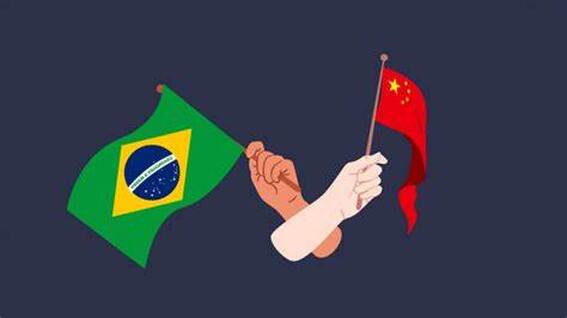
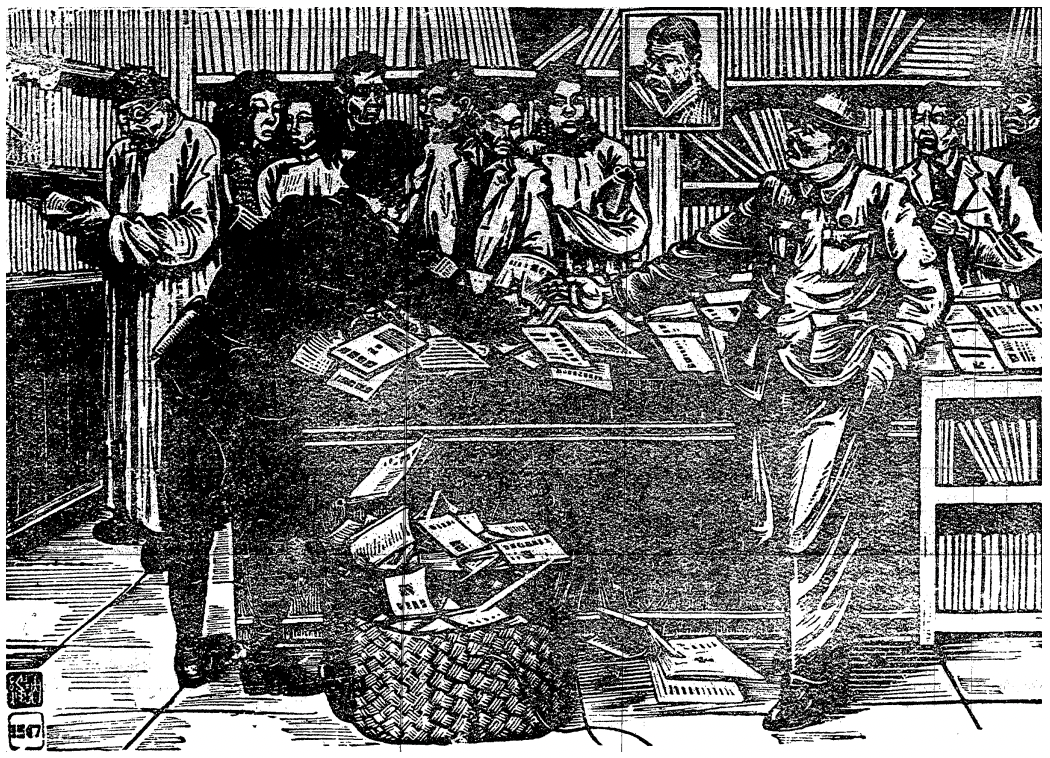

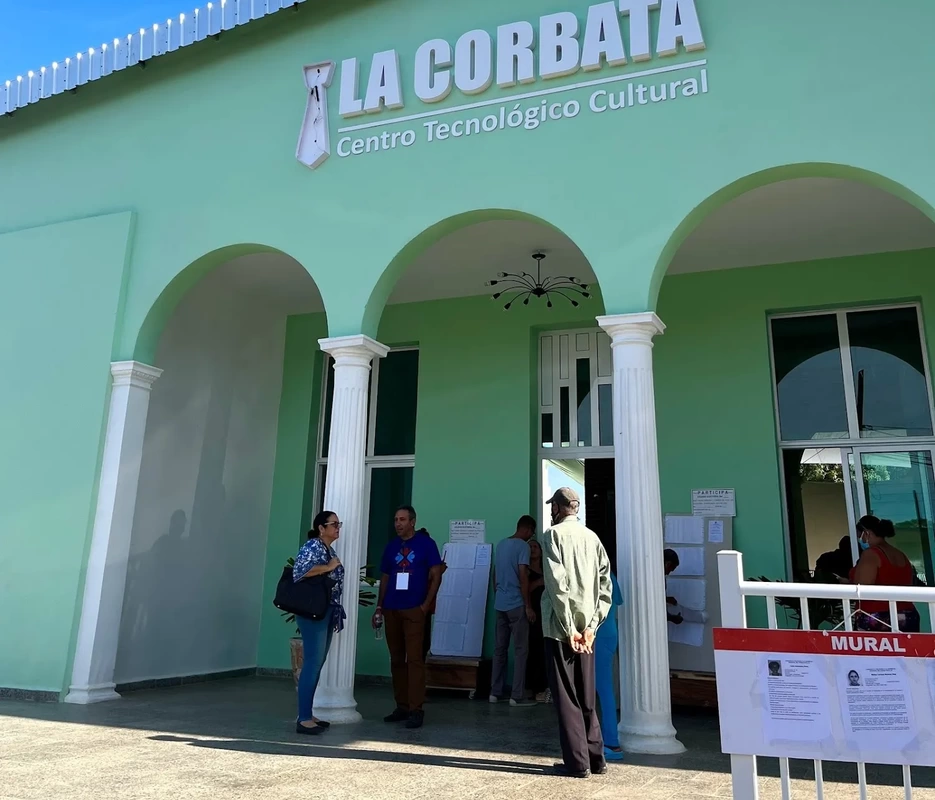


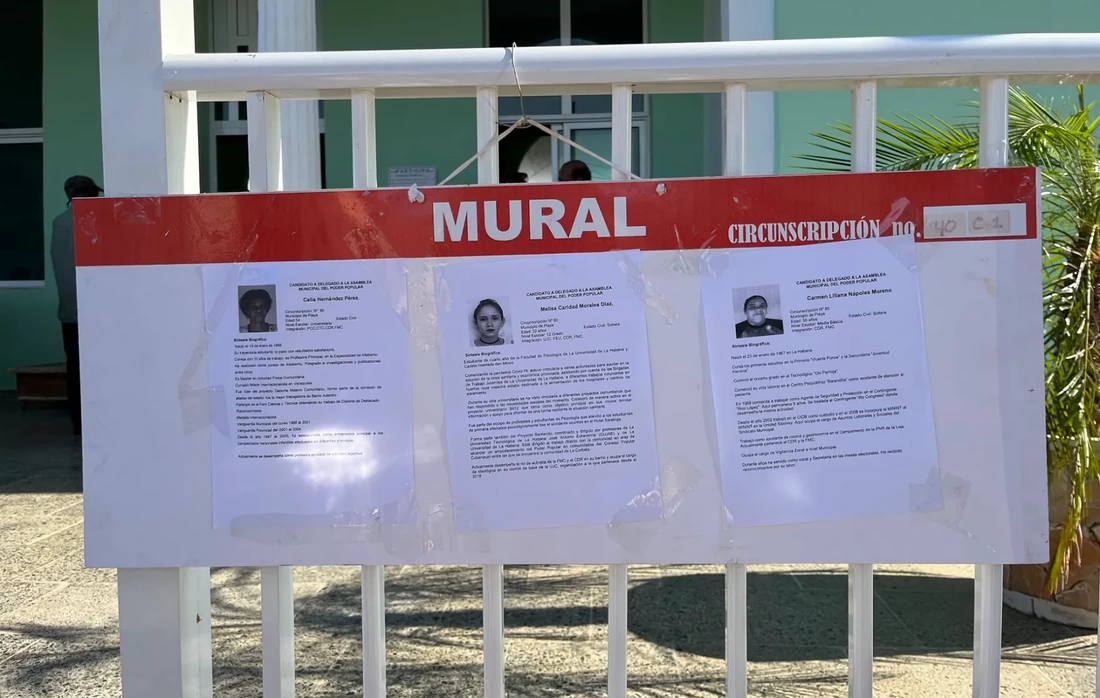

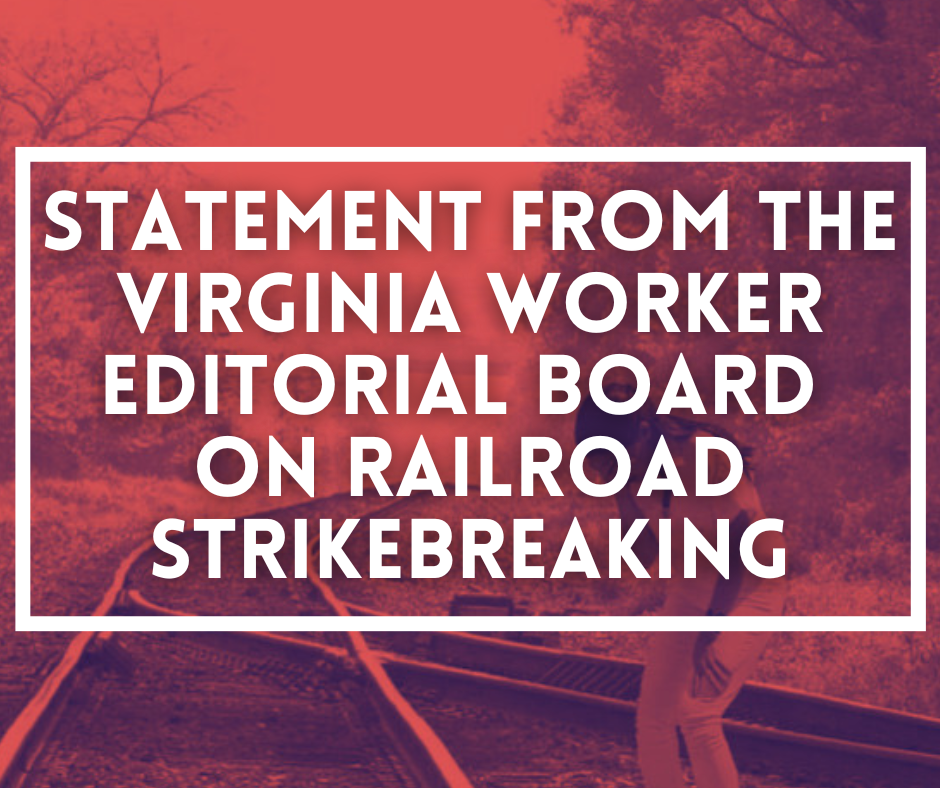
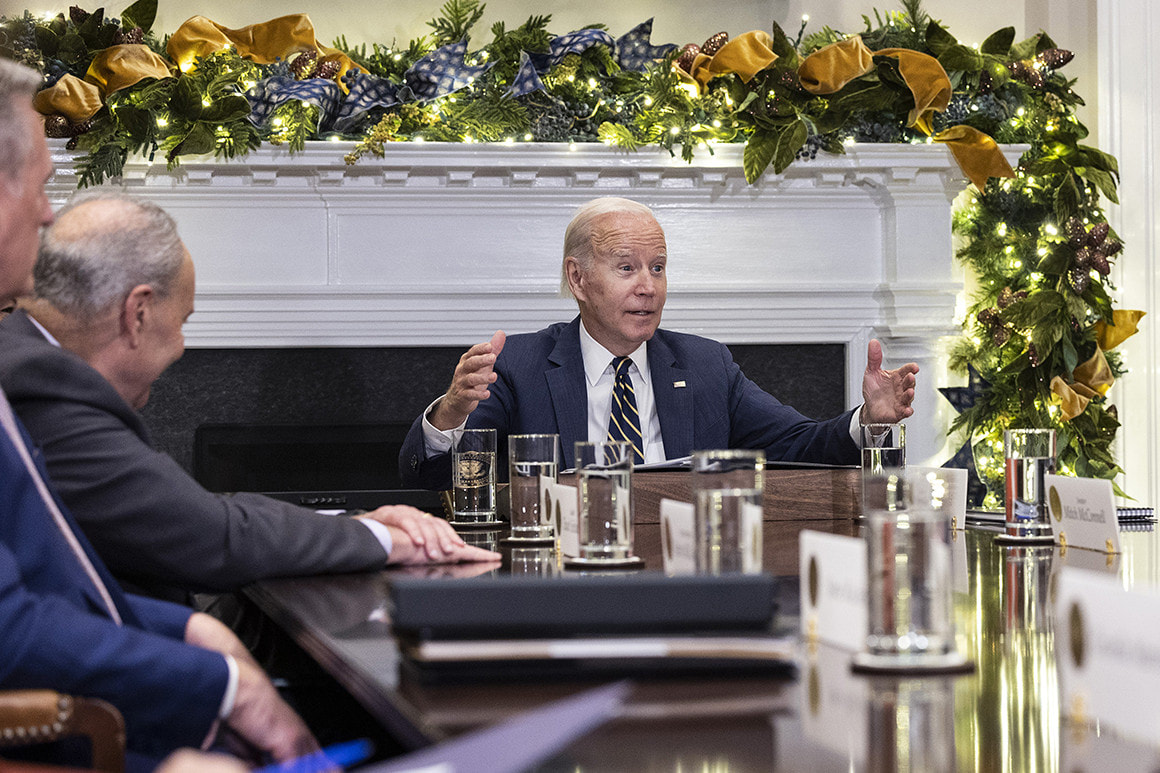
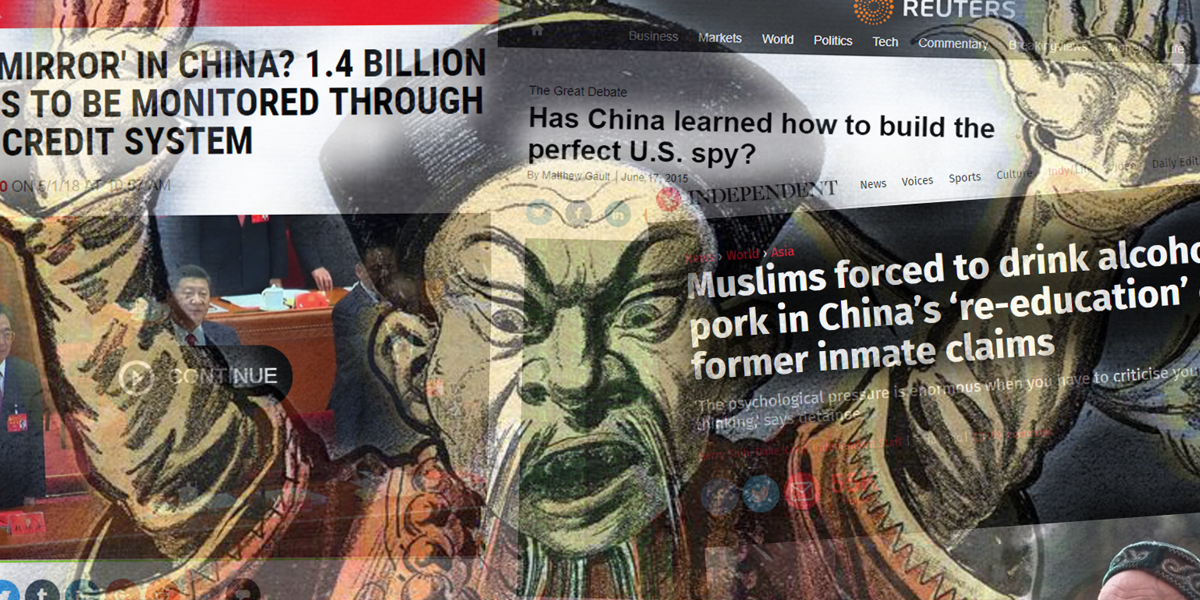
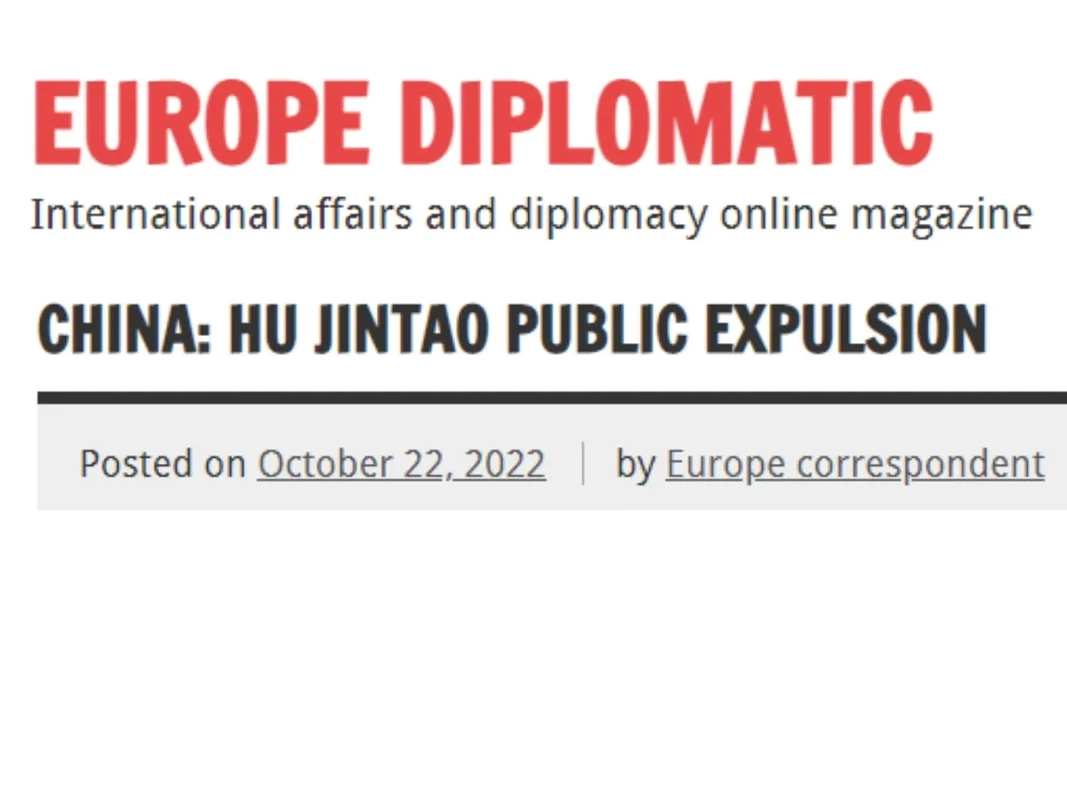
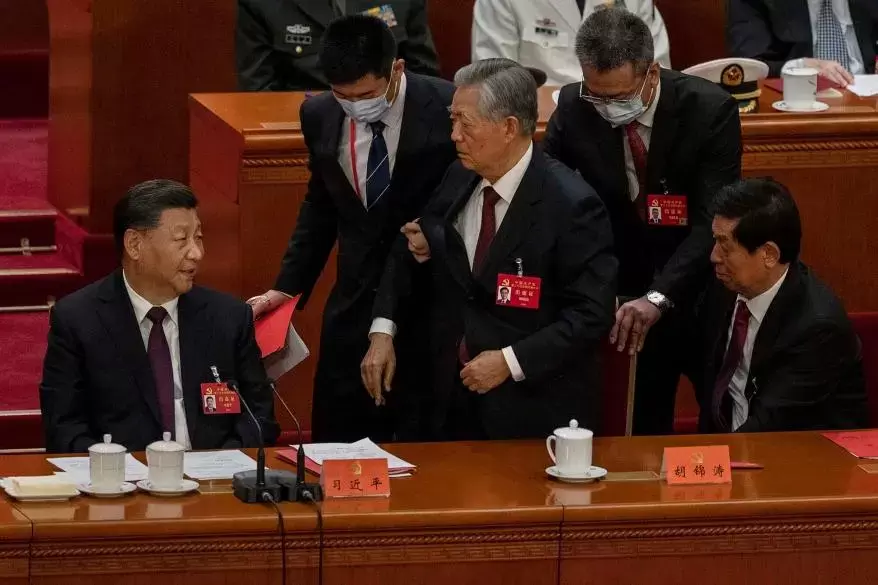
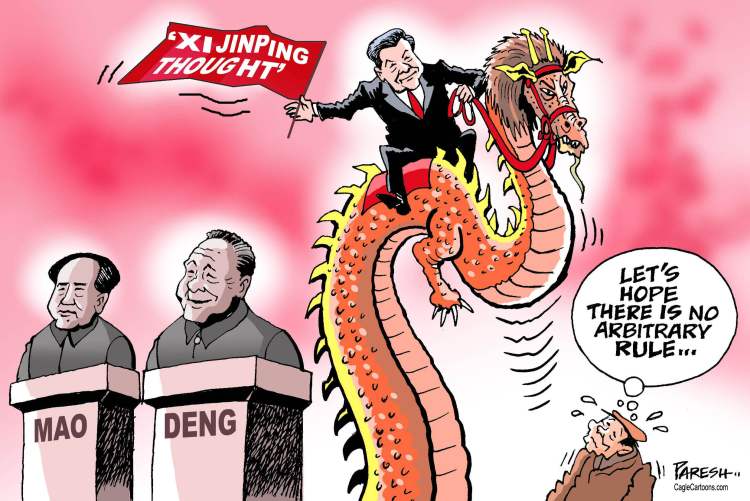
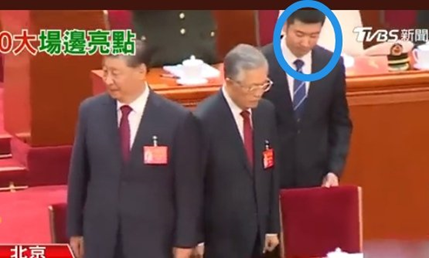
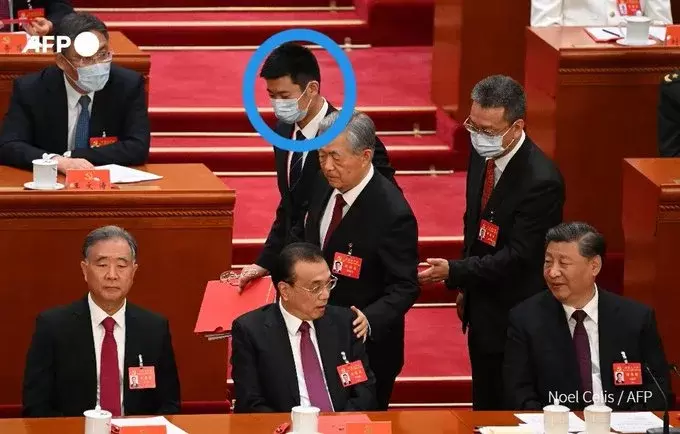
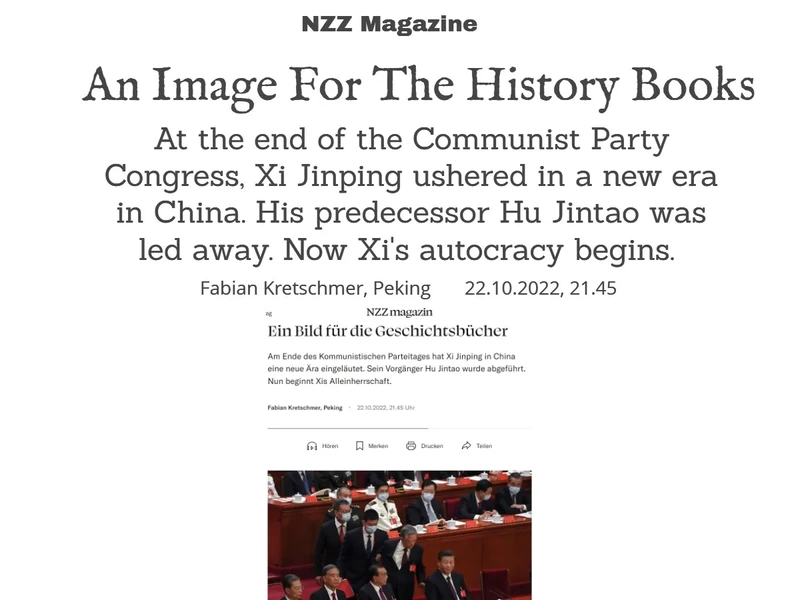
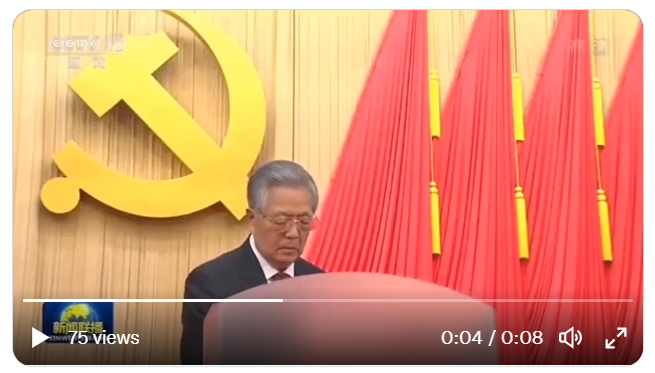
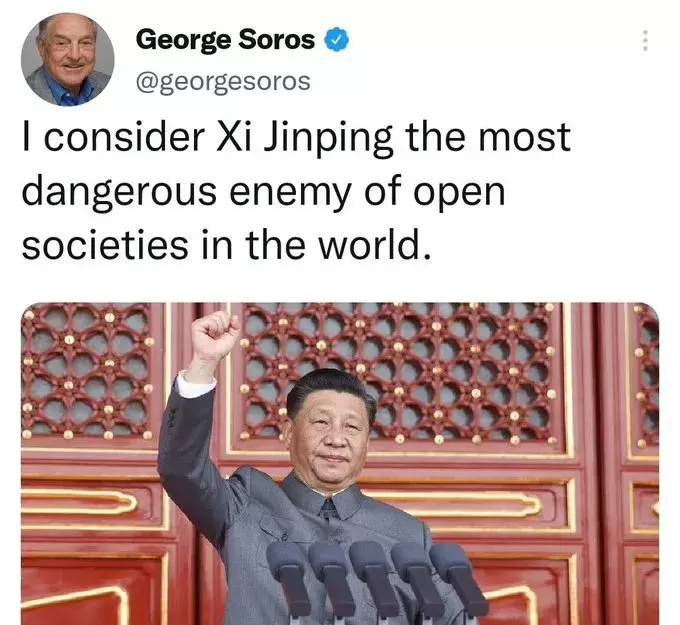
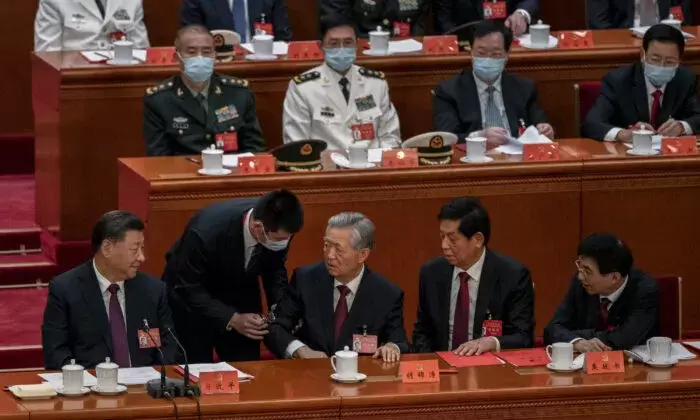
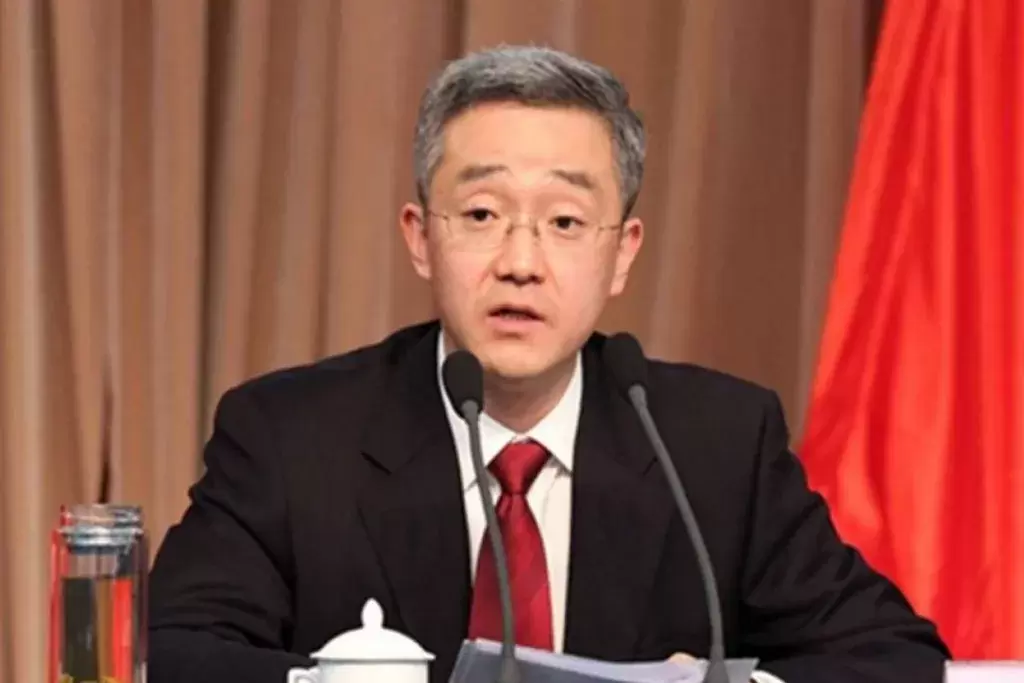
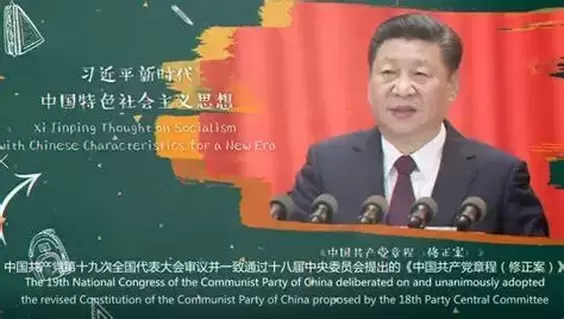
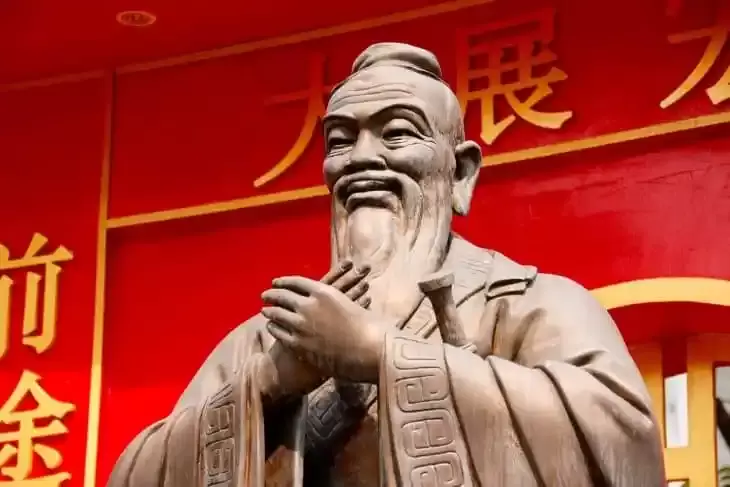

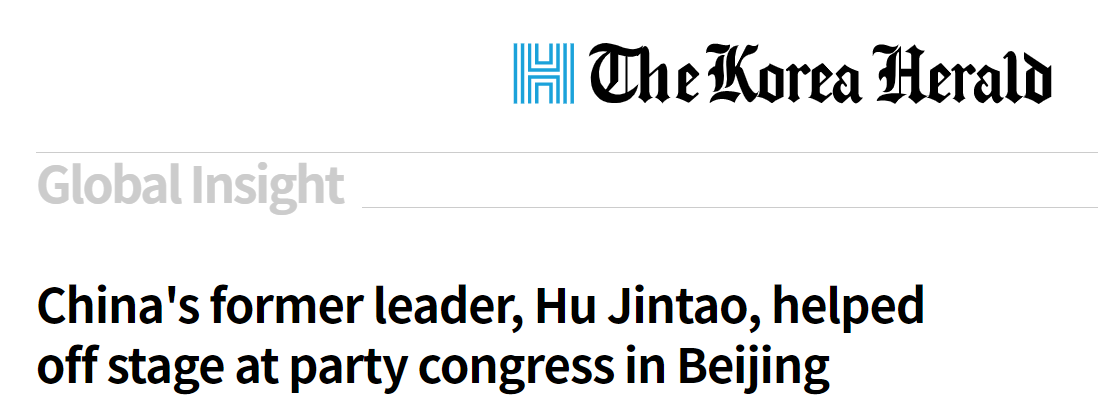



 RSS Feed
RSS Feed